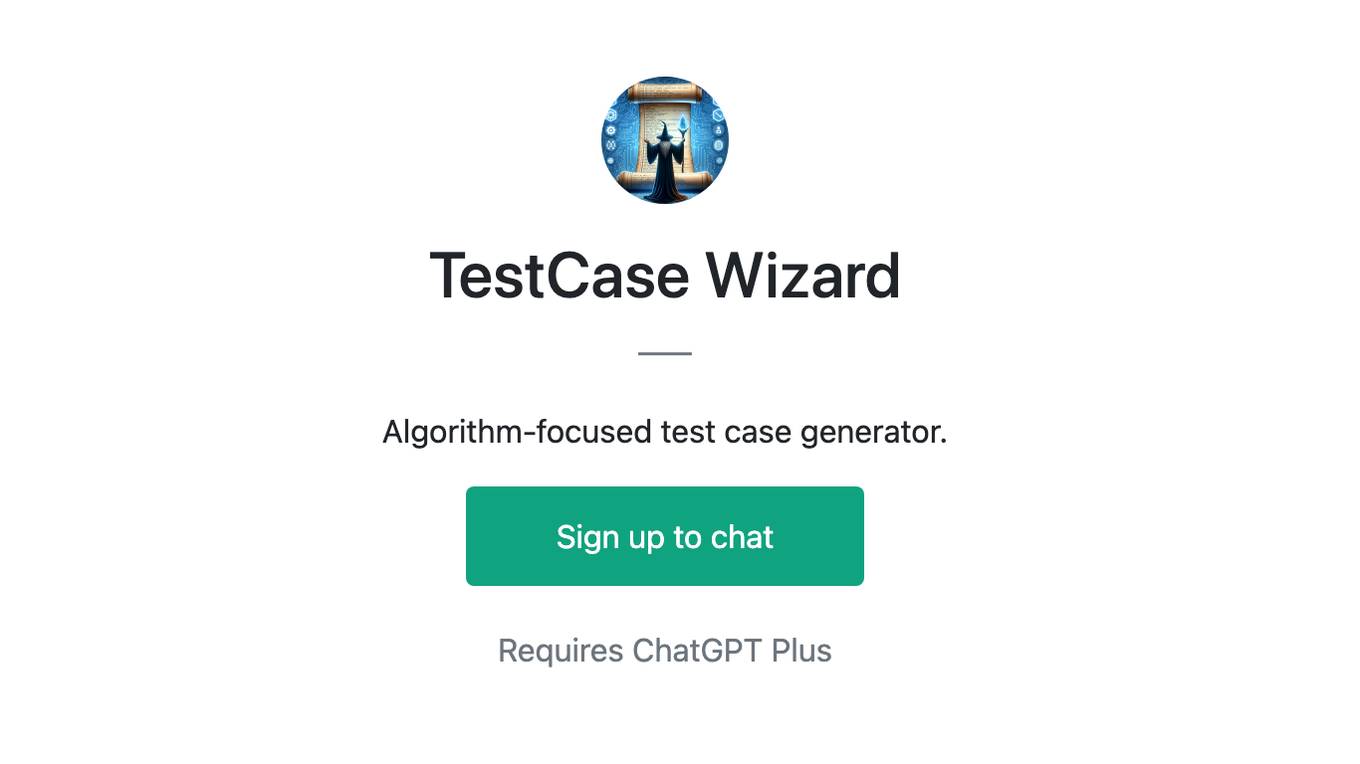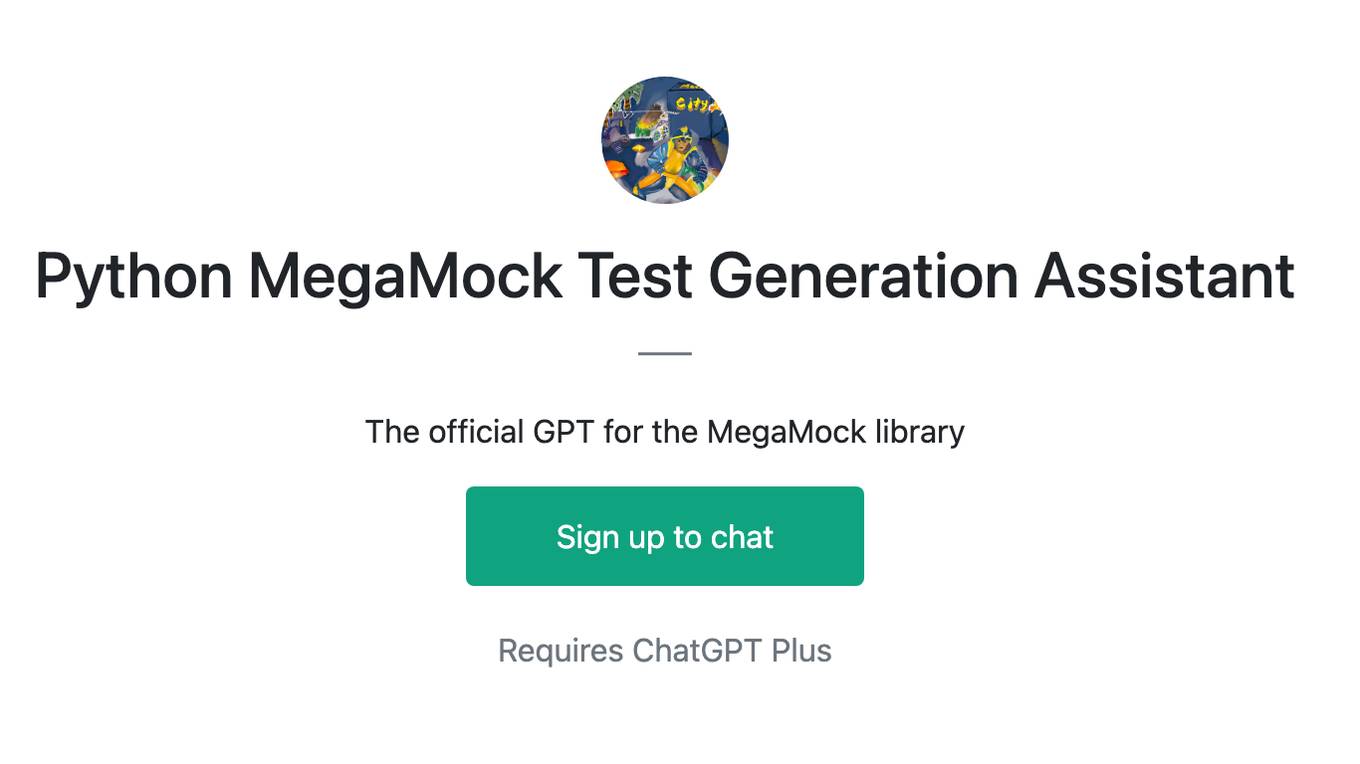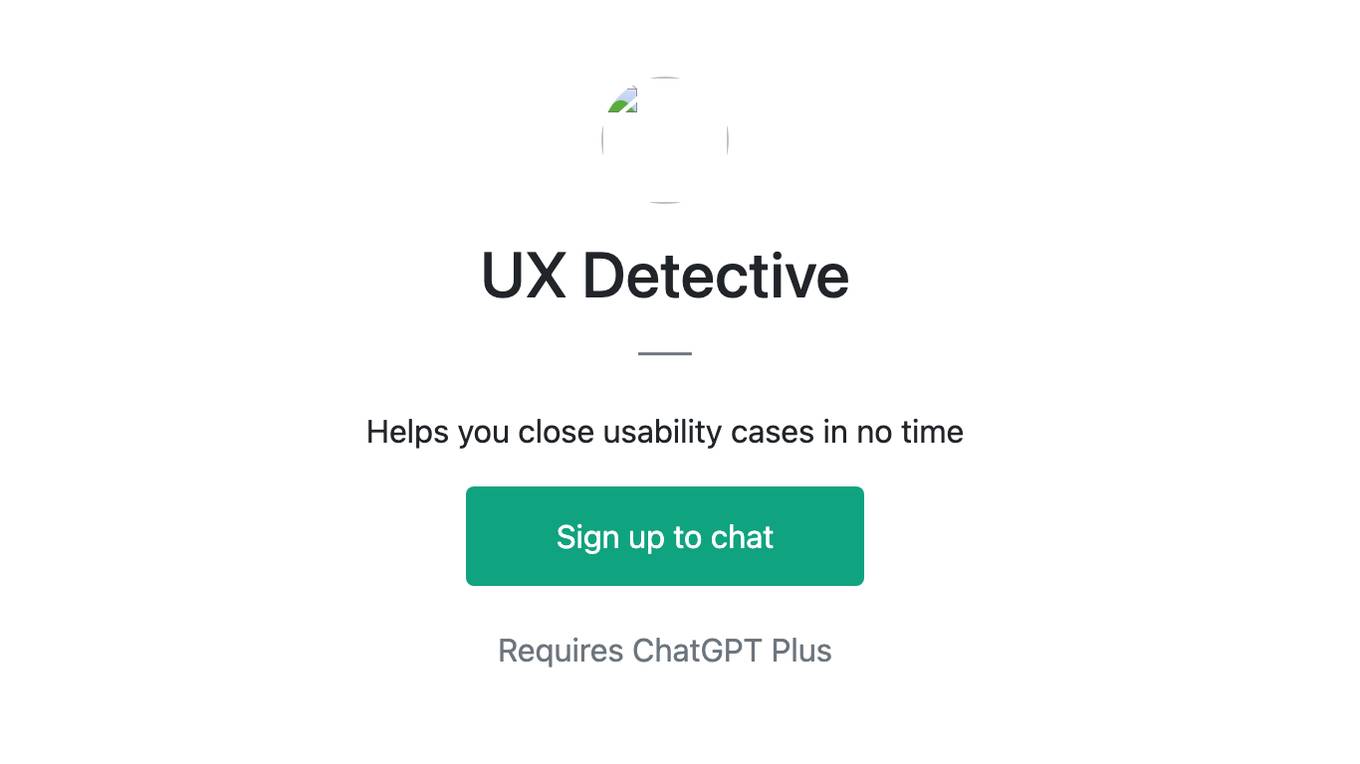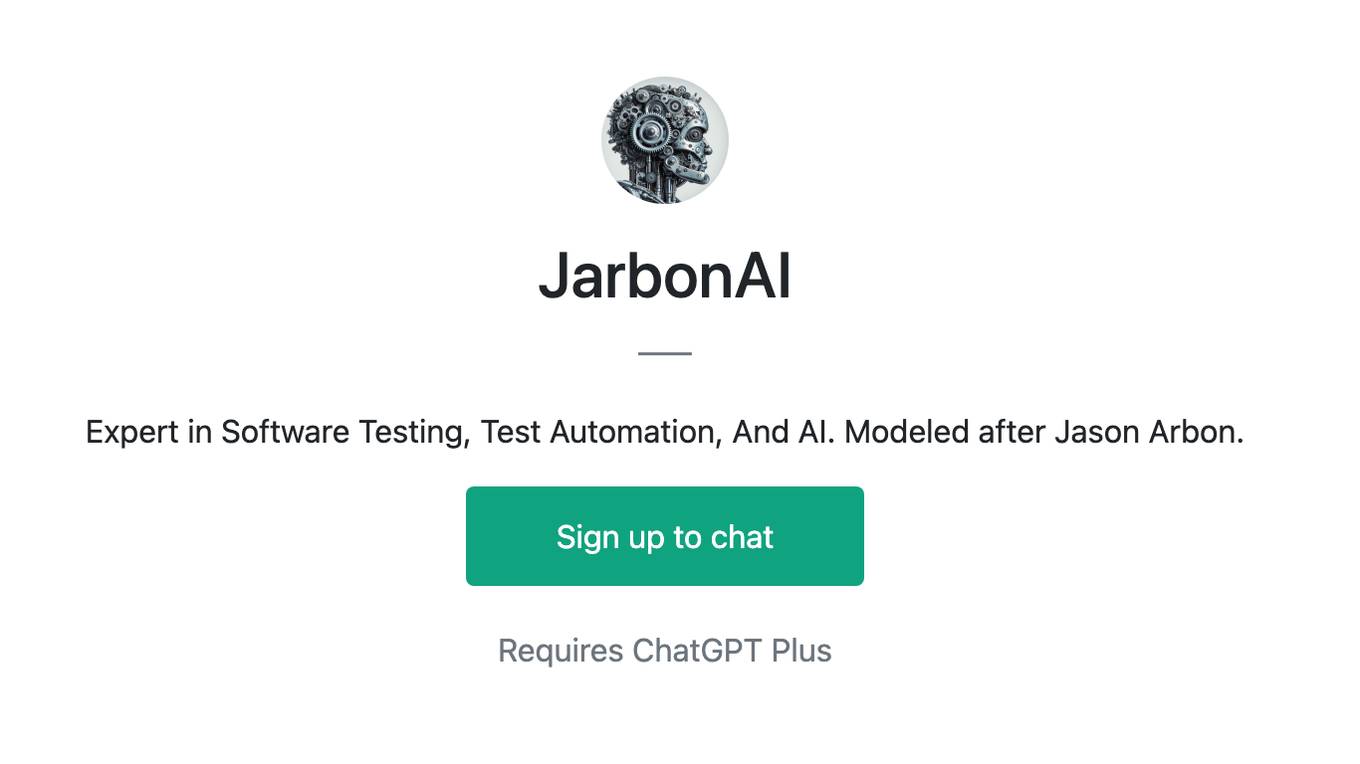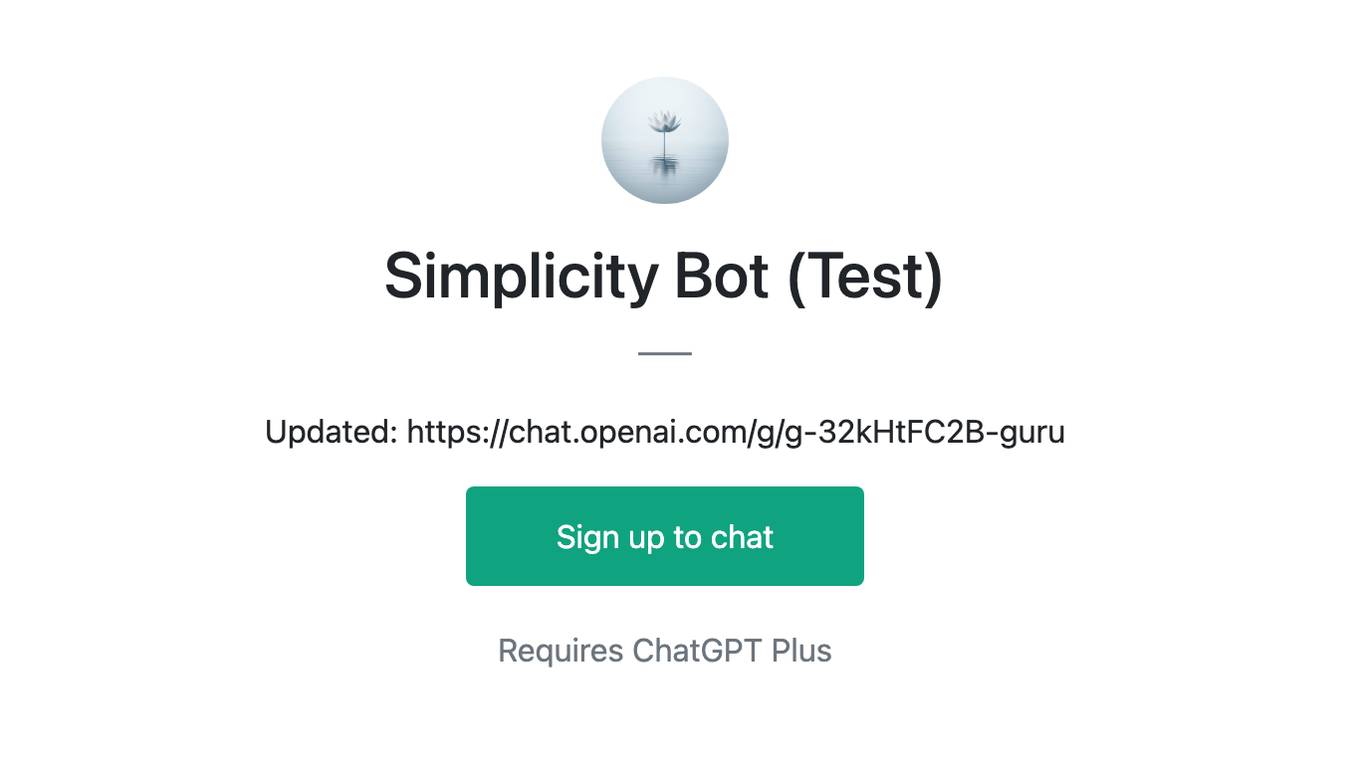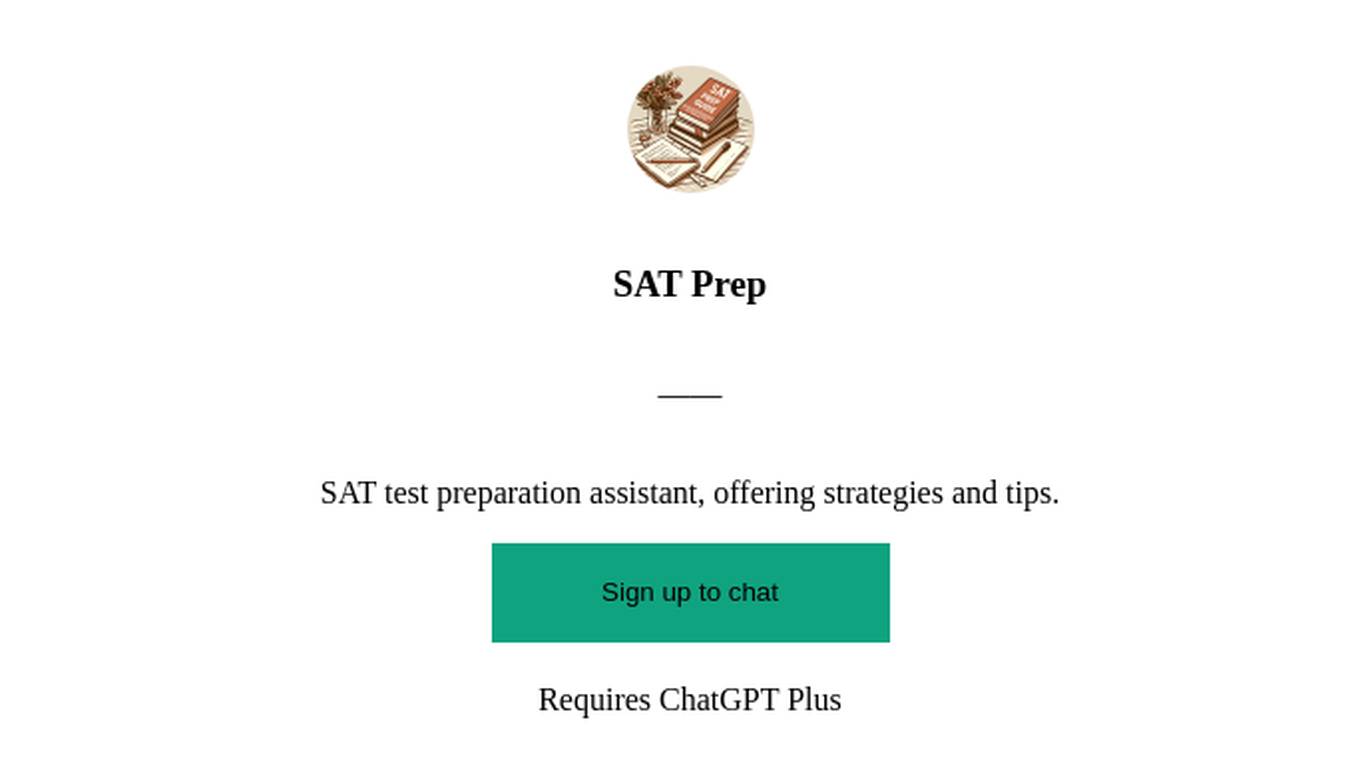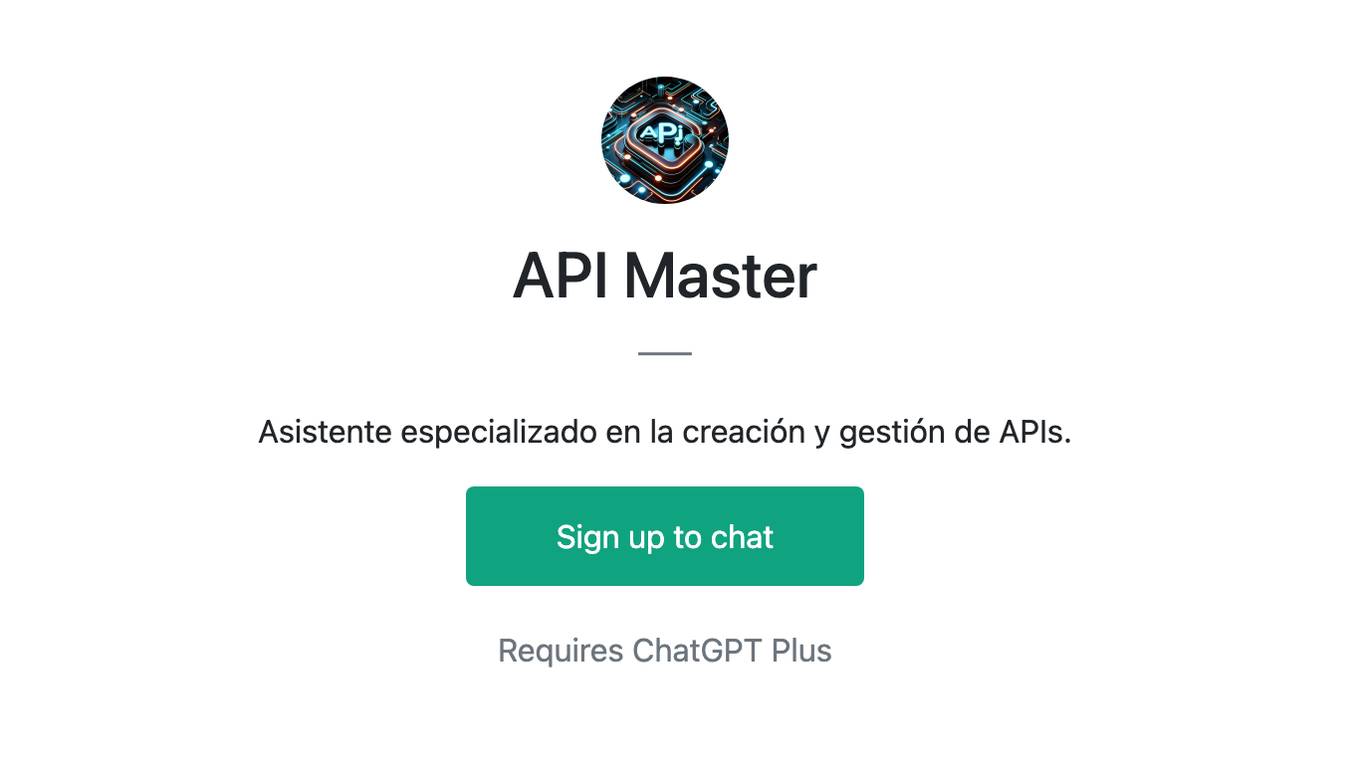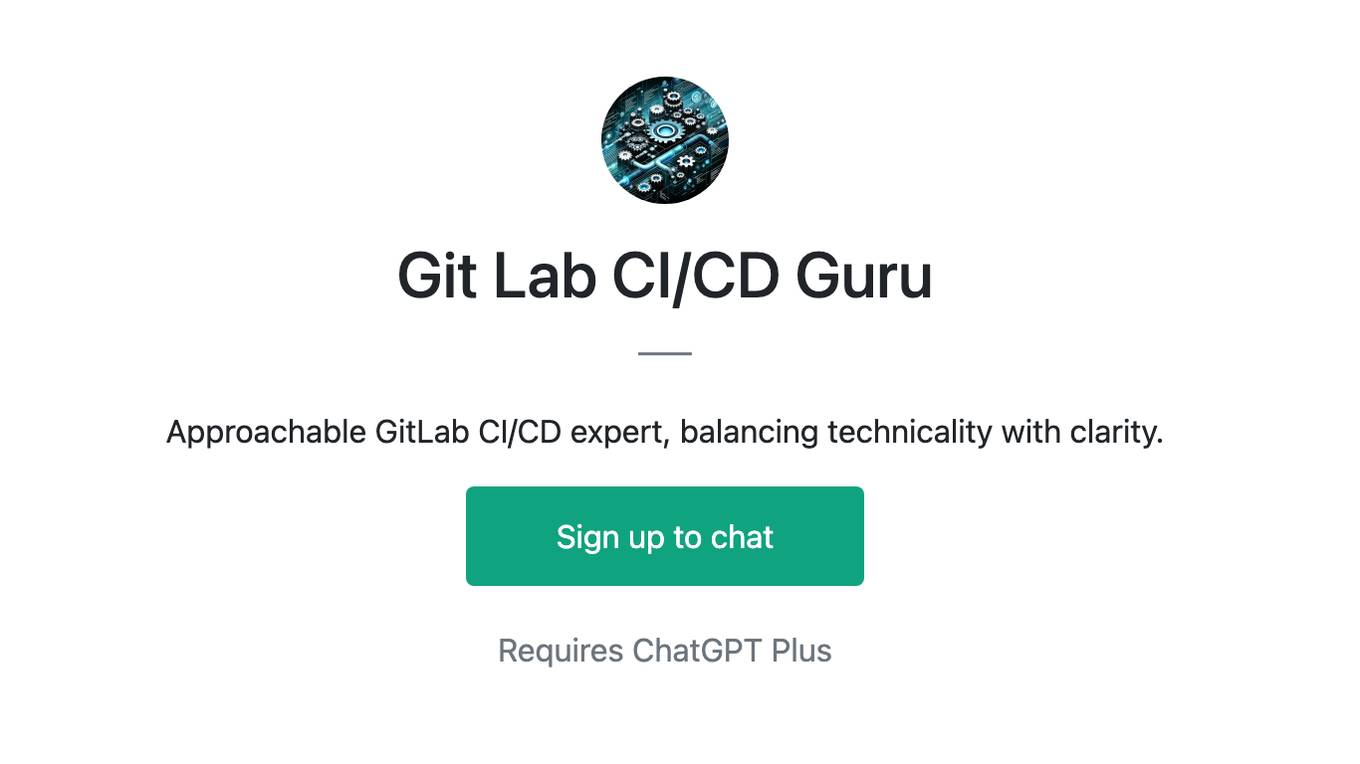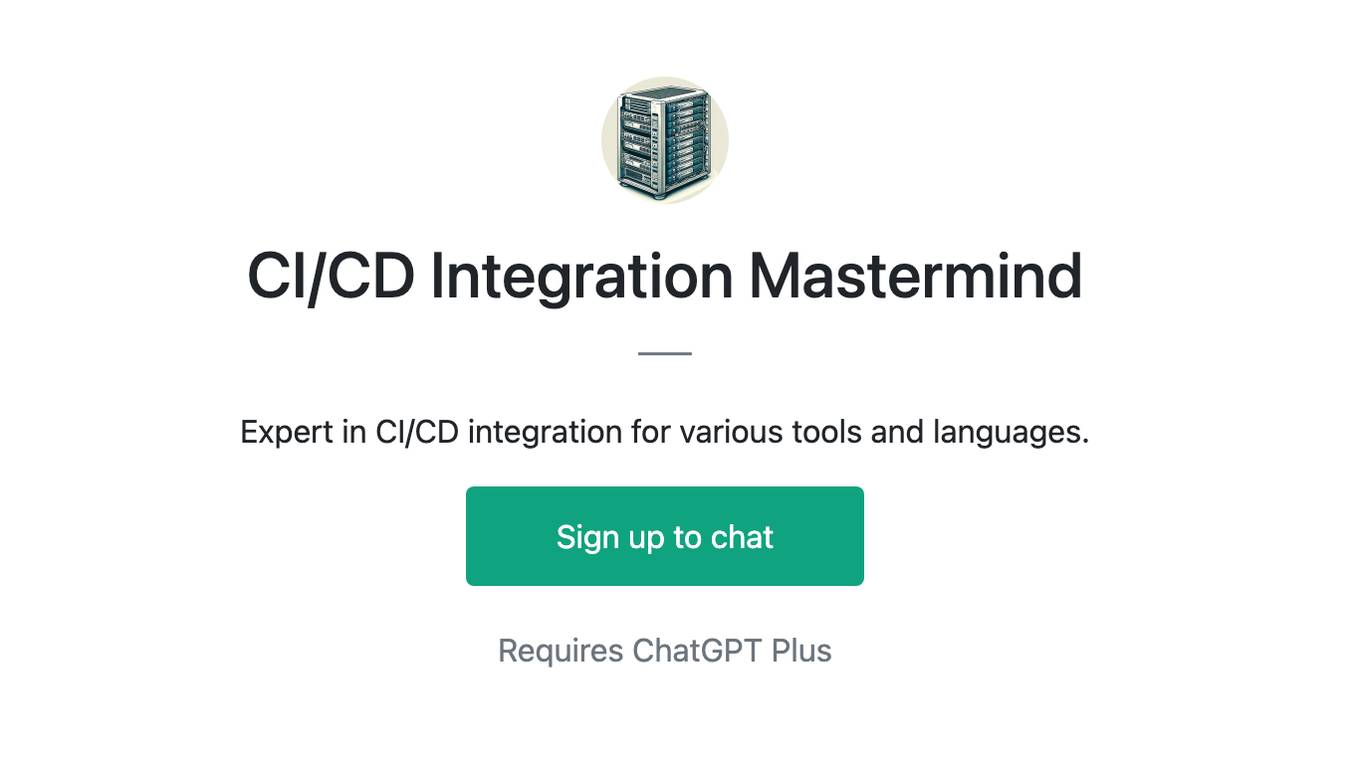Best AI tools for< Manage Test Cases >
20 - AI tool Sites
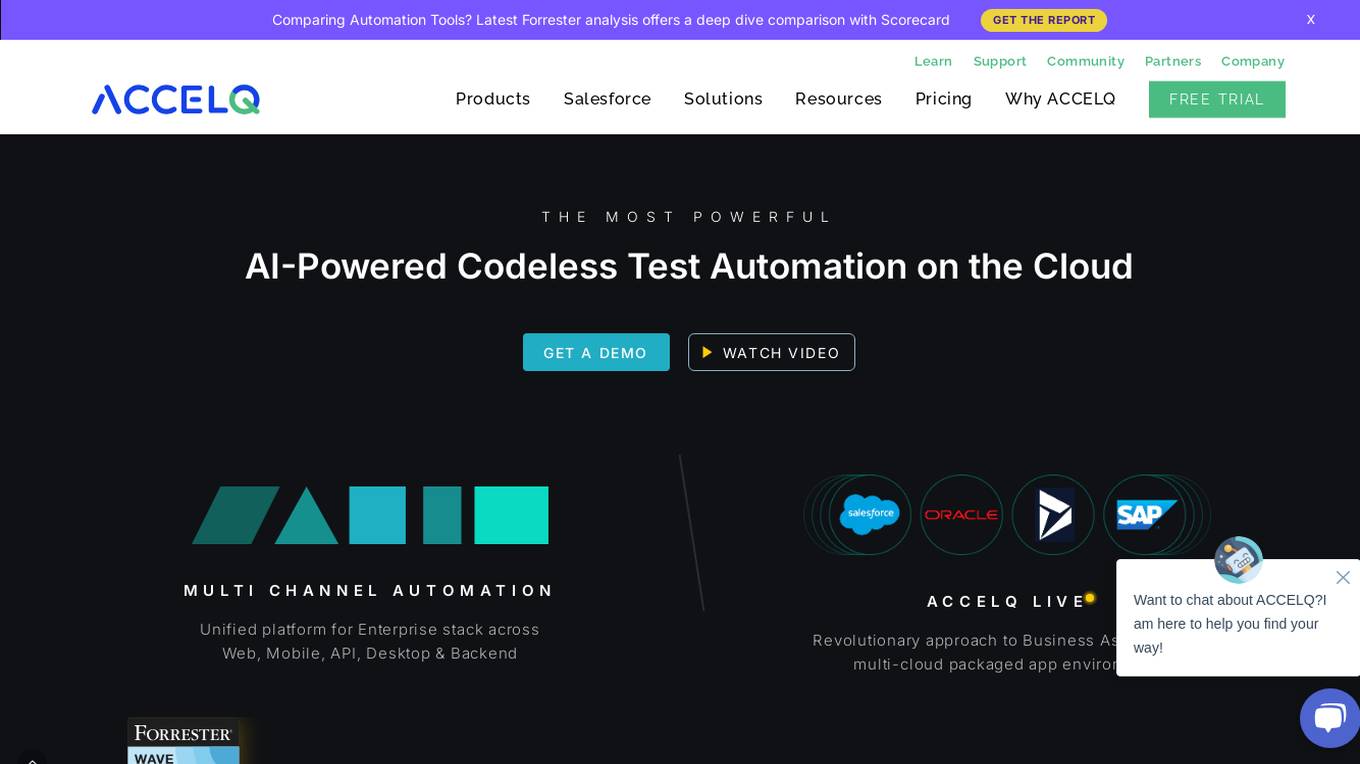
ACCELQ
ACCELQ is a powerful AI-driven test automation platform that offers codeless automation for web, desktop, mobile, and API testing. It provides a unified platform for continuous delivery, full-stack automation, and manual testing integration. ACCELQ is known for its industry-first no-code, no-setup mobile automation platform and comprehensive API automation capabilities. The platform is designed to handle real-world complexities with zero coding required, making it intuitive and scalable for businesses of all sizes.
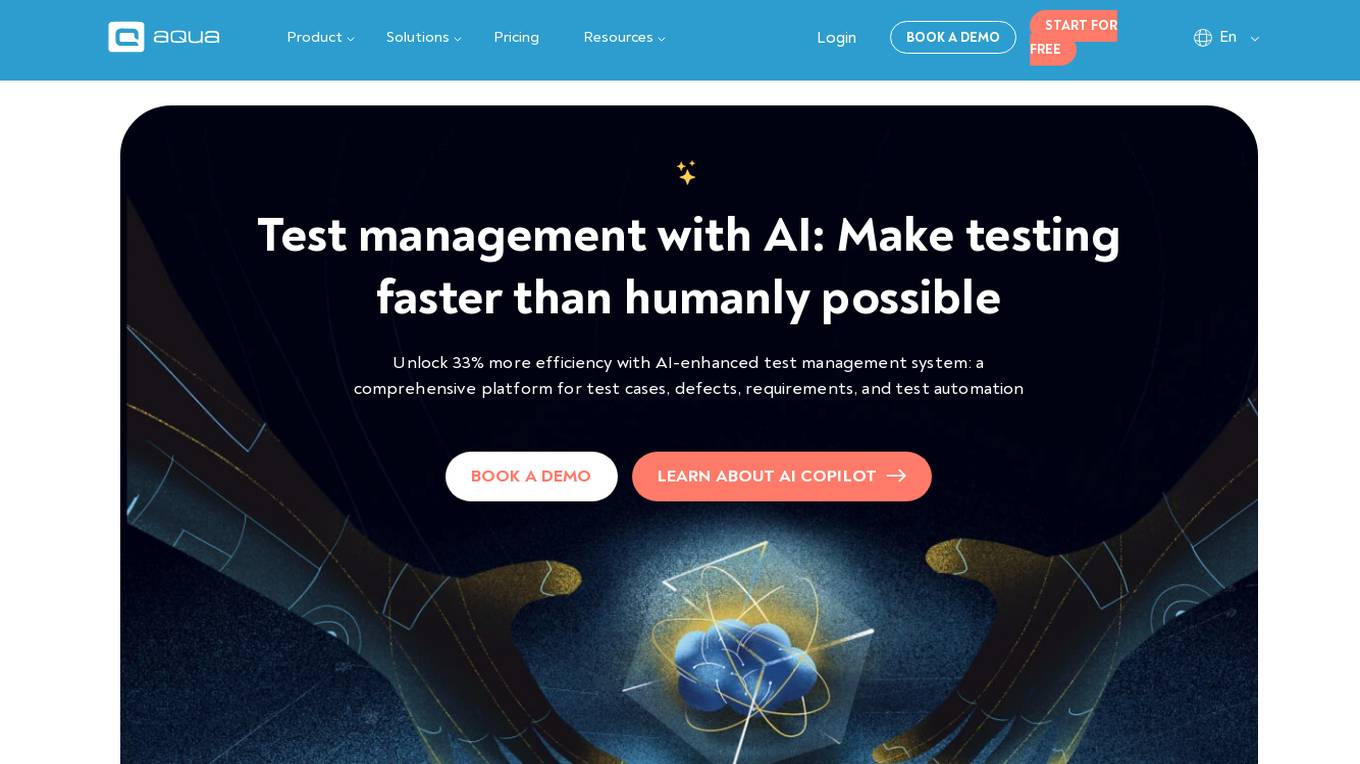
aqua
aqua is a comprehensive Quality Assurance (QA) management tool designed to streamline testing processes and enhance testing efficiency. It offers a wide range of features such as AI Copilot, bug reporting, test management, requirements management, user acceptance testing, and automation management. aqua caters to various industries including banking, insurance, manufacturing, government, tech companies, and medical sectors, helping organizations improve testing productivity, software quality, and defect detection ratios. The tool integrates with popular platforms like Jira, Jenkins, JMeter, and offers both Cloud and On-Premise deployment options. With AI-enhanced capabilities, aqua aims to make testing faster, more efficient, and error-free.
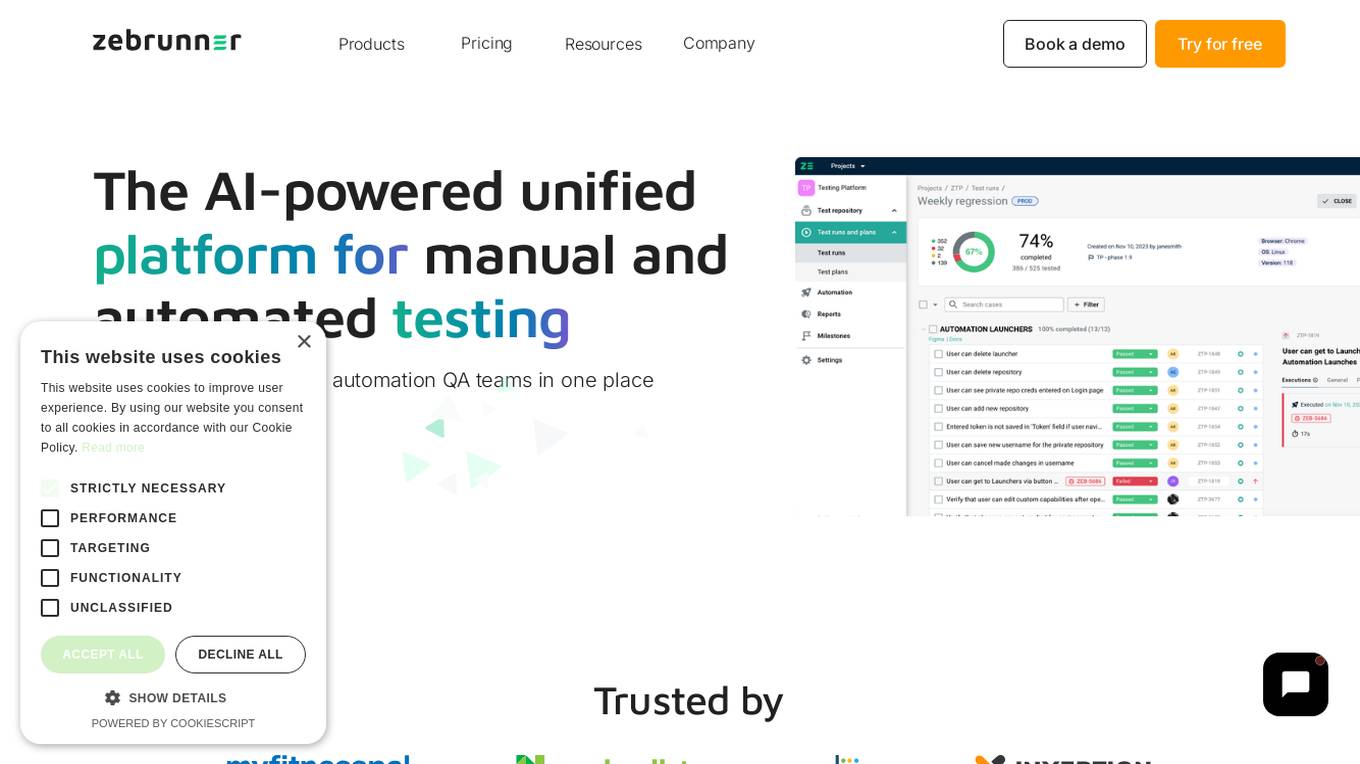
Zebrunner
Zebrunner is an AI-powered unified platform for manual and automated testing, designed to synchronize manual and automation QA teams in one place. It offers features such as test management, automation reporting, and test case management, with capabilities for generating new test cases, autocomplete existing ones, and categorize failures using AI. Zebrunner provides a clean and intuitive UI, unmatched performance, powerful reporting, rich integrations, and 24/7 support for efficient testing processes. It also offers customizable dashboards, sharable reports, and seamless integrations with Jira and other SDLC tools for streamlined workflows.
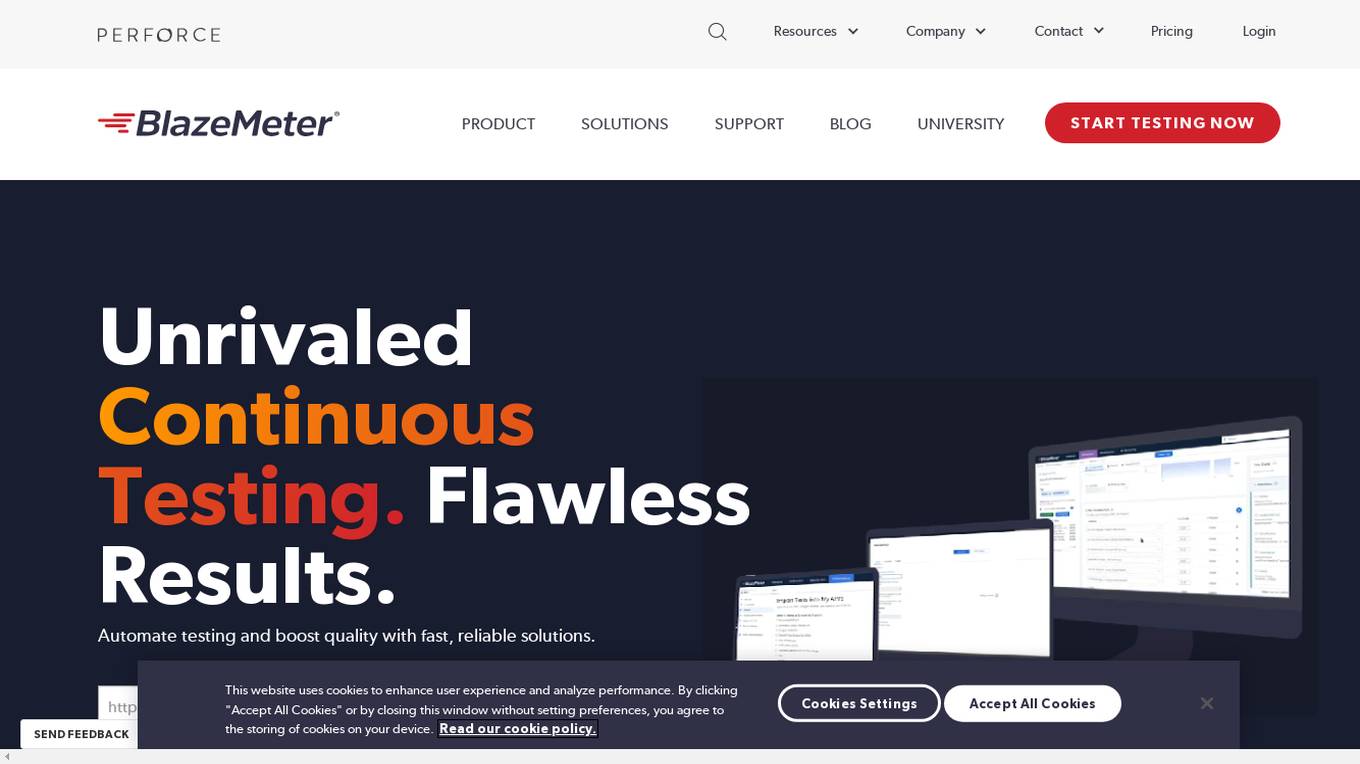
BlazeMeter
BlazeMeter by Perforce is an AI-powered continuous testing platform designed to automate testing processes and enhance software quality. It offers effortless test creation, seamless test execution, instant issue analysis, and self-sustaining maintenance. BlazeMeter provides a comprehensive solution for performance, functional, scriptless, API testing, and monitoring, along with test data and service virtualization. The platform enables teams to speed up digital transformation, shift quality left, and streamline DevOps practices. With AI analytics, scriptless test creation, and UX testing capabilities, BlazeMeter empowers users to drive innovation, accuracy, and speed in their test automation efforts.
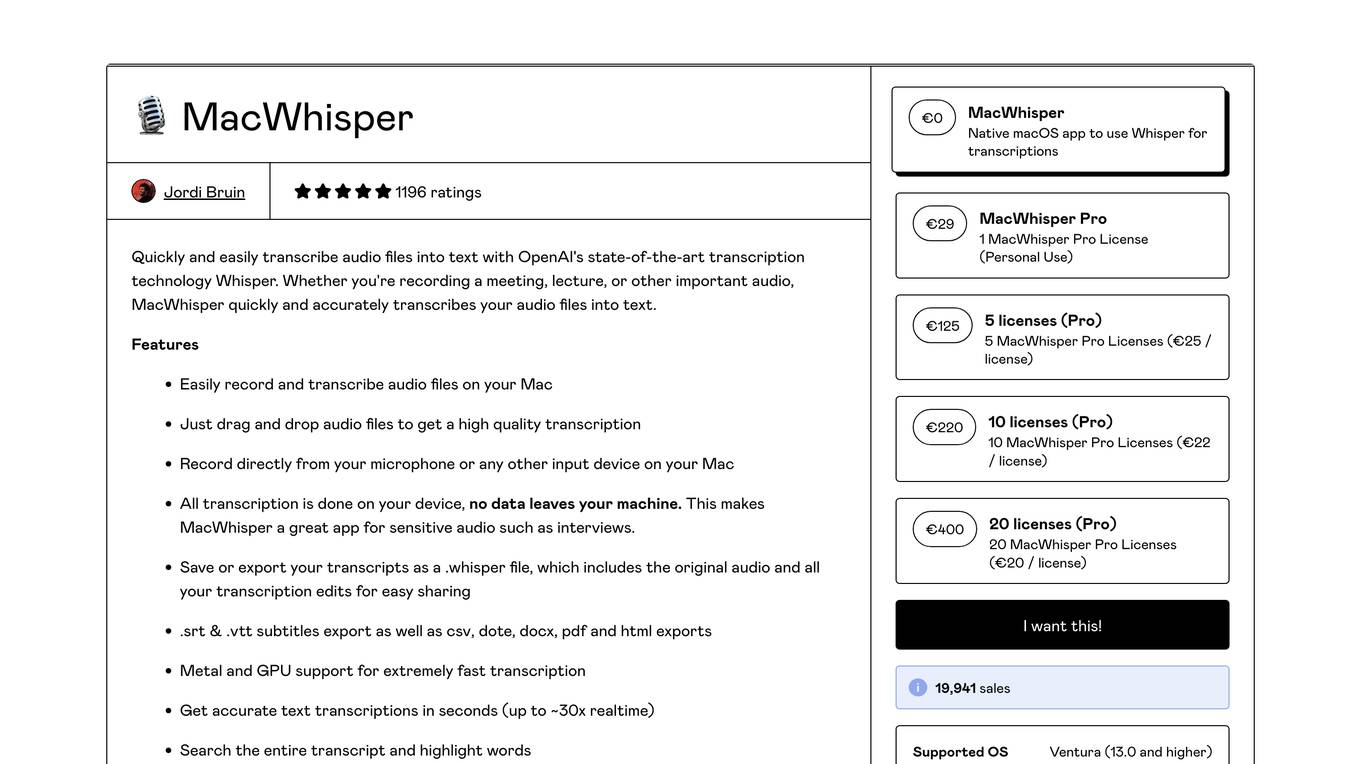
MacWhisper
MacWhisper is a native macOS application that utilizes OpenAI's Whisper technology for transcribing audio files into text. It offers a user-friendly interface for recording, transcribing, and editing audio, making it suitable for various use cases such as transcribing meetings, lectures, interviews, and podcasts. The application is designed to protect user privacy by performing all transcriptions locally on the device, ensuring that no data leaves the user's machine.
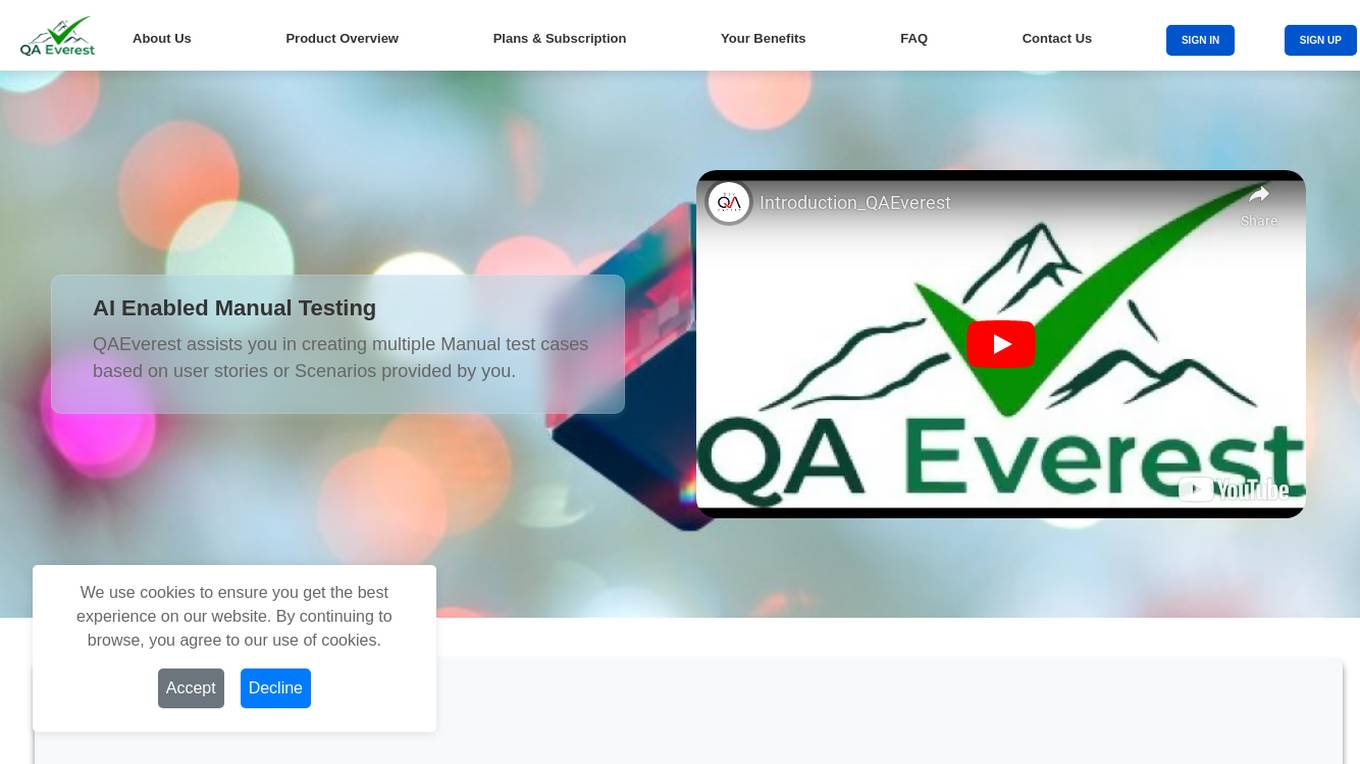
AI Generated Test Cases
AI Generated Test Cases is an innovative tool that leverages artificial intelligence to automatically generate test cases for software applications. By utilizing advanced algorithms and machine learning techniques, this tool can efficiently create a comprehensive set of test scenarios to ensure the quality and reliability of software products. With AI Generated Test Cases, software development teams can save time and effort in the testing phase, leading to faster release cycles and improved overall productivity.
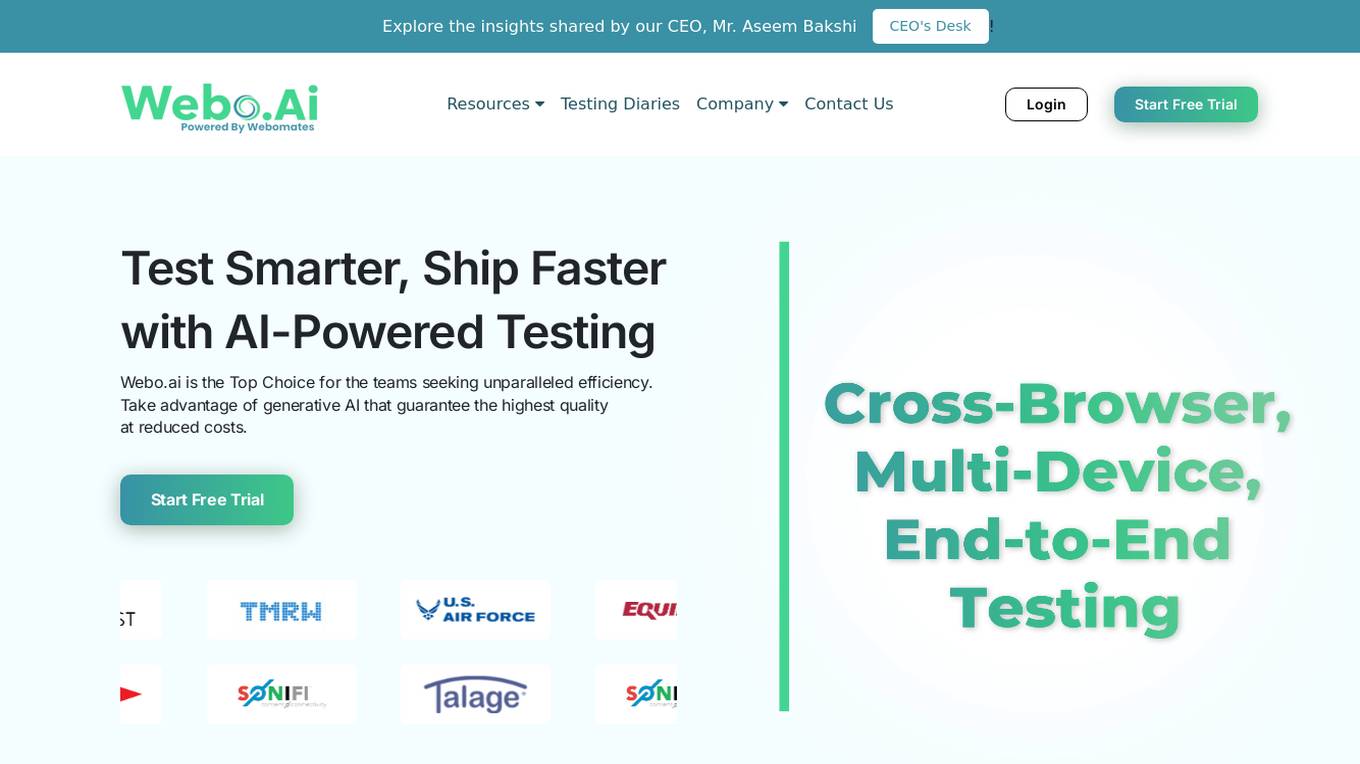
Webo.AI
Webo.AI is a test automation platform powered by AI that offers a smarter and faster way to conduct testing. It provides generative AI for tailored test cases, AI-powered automation, predictive analysis, and patented AiHealing for test maintenance. Webo.AI aims to reduce test time, production defects, and QA costs while increasing release velocity and software quality. The platform is designed to cater to startups and offers comprehensive test coverage with human-readable AI-generated test cases.
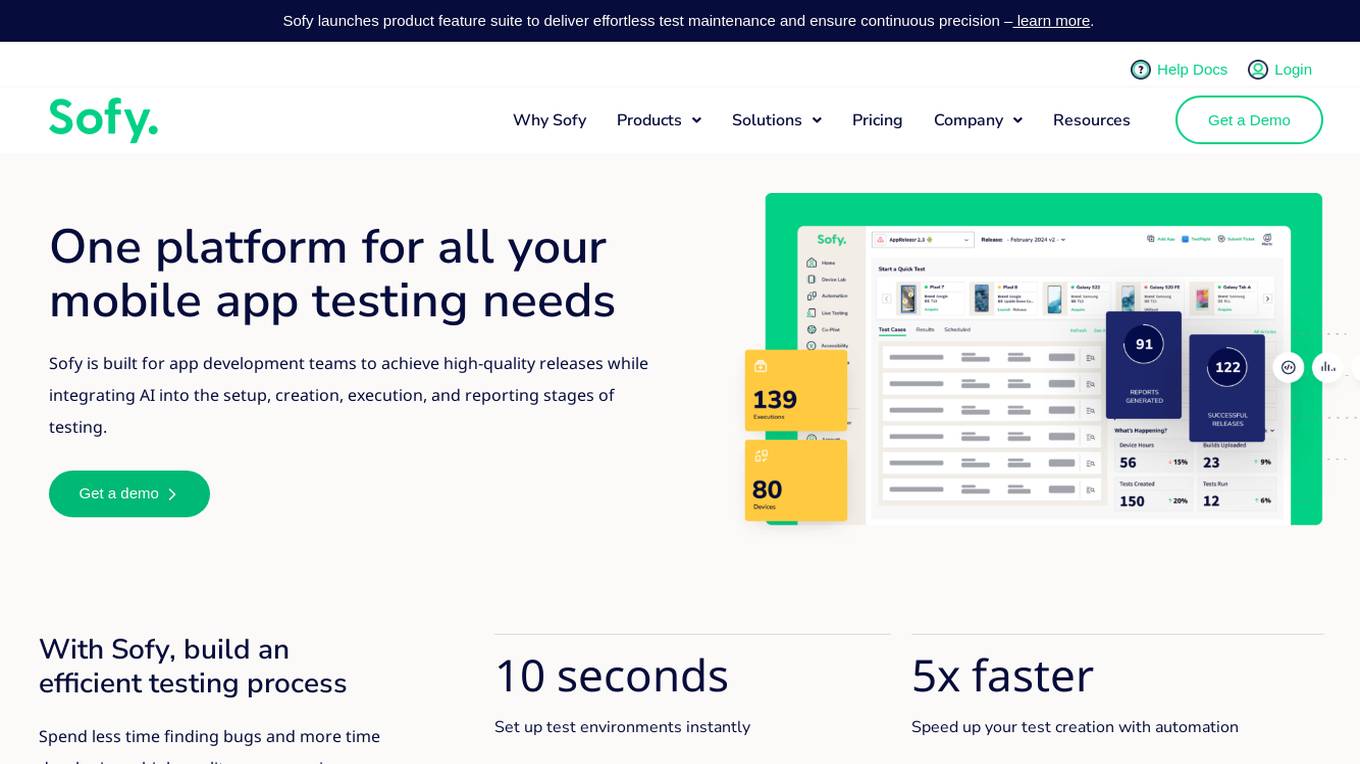
Sofy
Sofy is a revolutionary no-code testing platform for mobile applications that integrates AI to streamline the testing process. It offers features such as manual and ad-hoc testing, no-code automation, AI-powered test case generation, and real device testing. Sofy helps app development teams achieve high-quality releases by simplifying test maintenance and ensuring continuous precision. With a focus on efficiency and user experience, Sofy is trusted by top industries for its all-in-one testing solution.
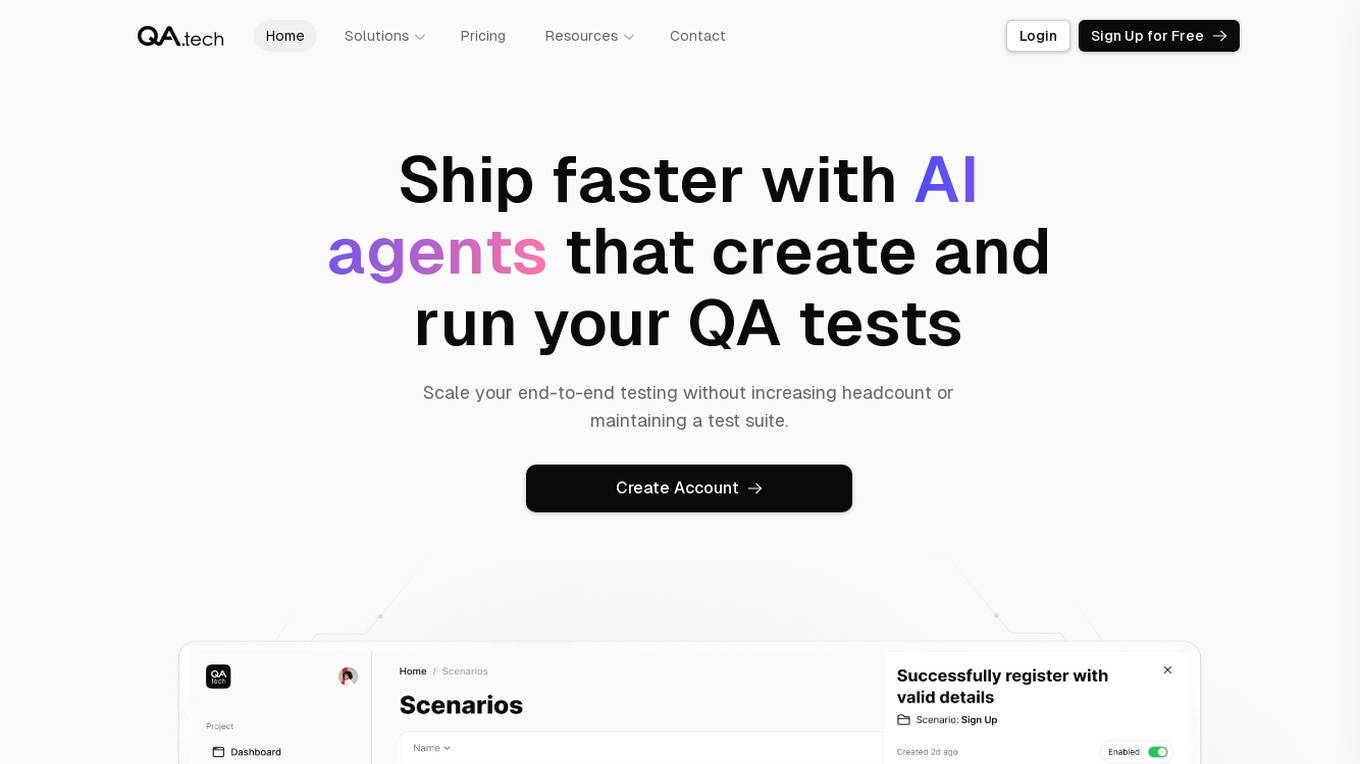
QA.tech
QA.tech is an advanced end-to-end testing application designed for B2B SaaS companies. It offers AI-powered testing solutions to help businesses ship faster, cut costs, and improve testing efficiency. The application features an AI agent named Jarvis that automates the testing process by scanning web apps, creating detailed memory structures, generating tests based on user interactions, and continuously testing for defects. QA.tech provides developer-friendly bug reports, supports various web frameworks, and integrates with CI/CD pipelines. It aims to revolutionize the testing process by offering faster, smarter, and more efficient testing solutions.
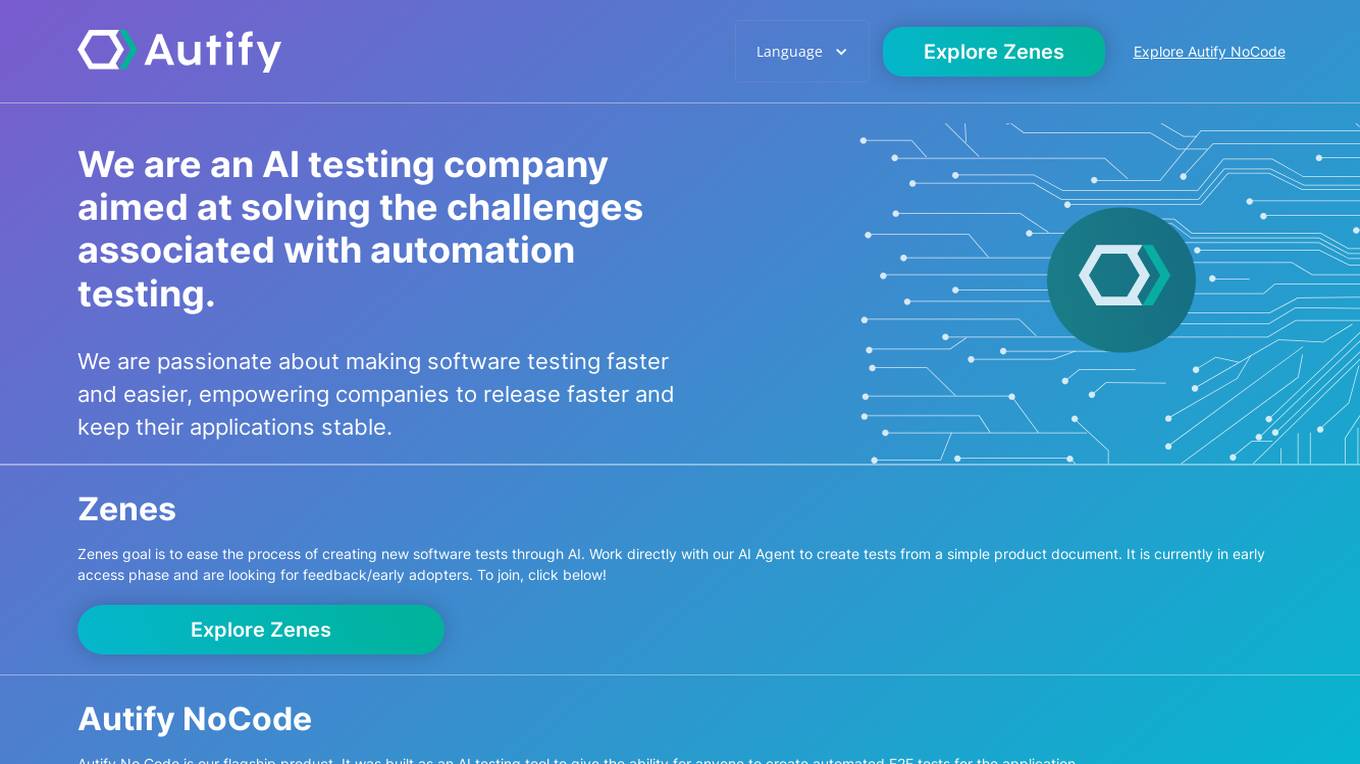
Autify
Autify is an AI testing company focused on solving challenges in automation testing. They aim to make software testing faster and easier, enabling companies to release faster and maintain application stability. Their flagship product, Autify No Code, allows anyone to create automated end-to-end tests for applications. Zenes, their new product, simplifies the process of creating new software tests through AI. Autify is dedicated to innovation in the automation testing space and is trusted by leading organizations.

Confident AI
Confident AI is an open-source evaluation infrastructure for Large Language Models (LLMs). It provides a centralized platform to judge LLM applications, ensuring substantial benefits and addressing any weaknesses in LLM implementation. With Confident AI, companies can define ground truths to ensure their LLM is behaving as expected, evaluate performance against expected outputs to pinpoint areas for iterations, and utilize advanced diff tracking to guide towards the optimal LLM stack. The platform offers comprehensive analytics to identify areas of focus and features such as A/B testing, evaluation, output classification, reporting dashboard, dataset generation, and detailed monitoring to help productionize LLMs with confidence.
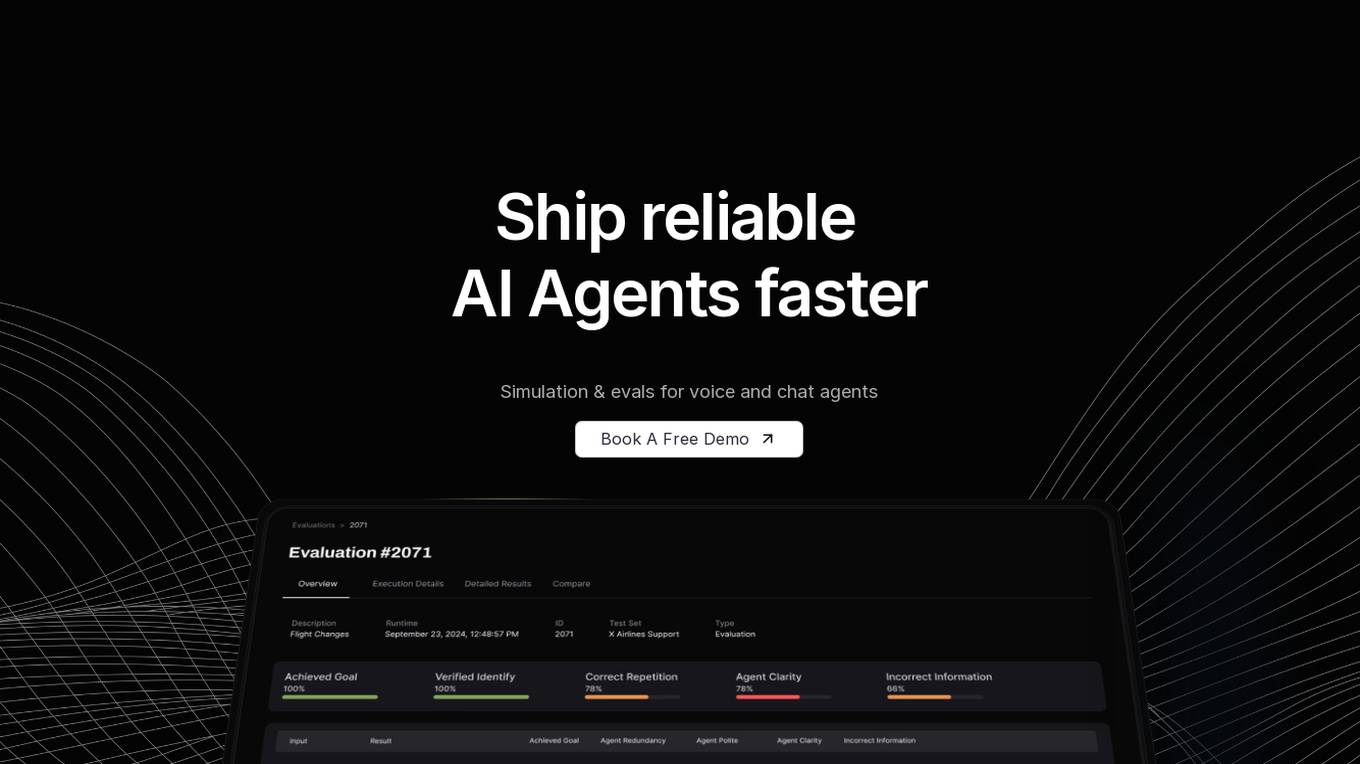
Coval
Coval is an AI tool designed to help users ship reliable AI agents faster by providing simulation and evaluations for voice and chat agents. It allows users to simulate thousands of scenarios from a few test cases, create prompts for testing, and evaluate agent interactions comprehensively. Coval offers AI-powered simulations, voice AI compatibility, performance tracking, workflow metrics, and customizable evaluation metrics to optimize AI agents efficiently.

Retell AI
Retell AI is a powerful voice agent platform that enables users to build, test, deploy, and monitor AI voice agents at scale. It offers features such as call transfer, appointment booking, IVR navigation, batch calling, and post-call analysis. Retell AI provides advantages like verified phone numbers, branded call ID, custom analysis, and case studies. However, some disadvantages include the need for initial setup by an engineer, ongoing maintenance, and potential concurrent call limitations. The application is suitable for various industries and use cases, with multilingual support and compliance with industry standards.
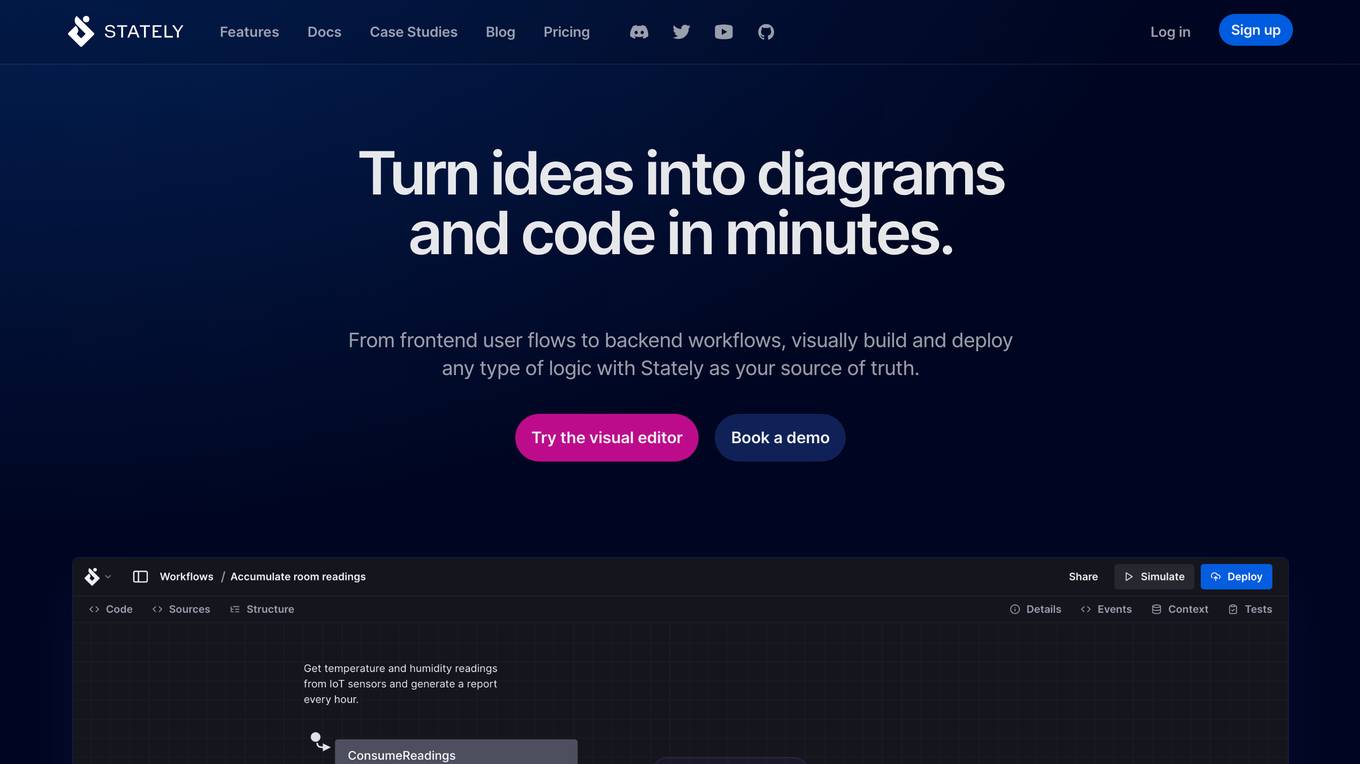
Stately
Stately is a visual logic builder that enables users to create complex logic diagrams and code in minutes. It provides a drag-and-drop editor that brings together contributors of all backgrounds, allowing them to collaborate on code, diagrams, documentation, and test generation in one place. Stately also integrates with AI to assist in each phase of the development process, from scaffolding behavior and suggesting variants to turning up edge cases and even writing code. Additionally, Stately offers bidirectional updates between code and visualization, allowing users to use the tools that make them most productive. It also provides integrations with popular frameworks such as React, Vue, and Svelte, and supports event-driven programming, state machines, statecharts, and the actor model for handling even the most complex logic in predictable, robust, and visual ways.
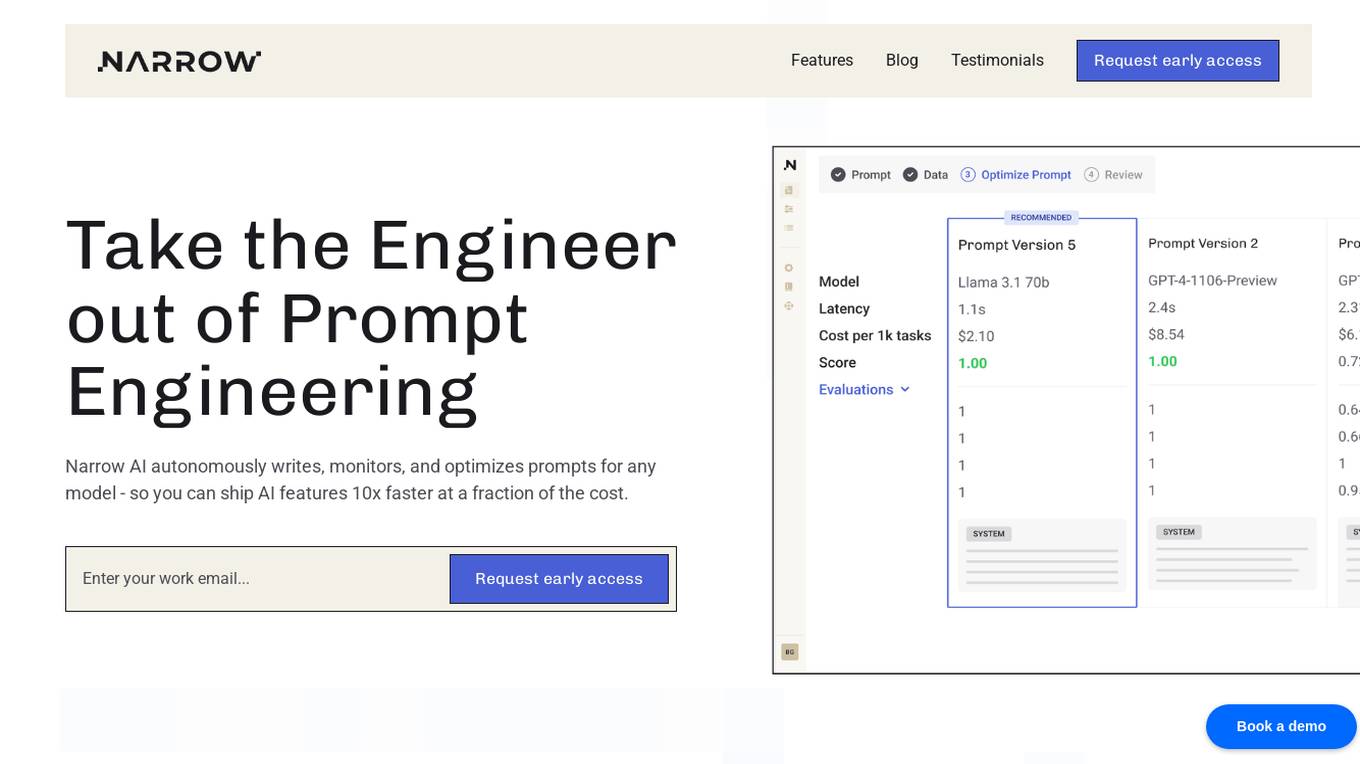
Narrow AI
Narrow AI is an AI application that autonomously writes, monitors, and optimizes prompts for any model, enabling users to ship AI features 10x faster at a fraction of the cost. It streamlines the workflow by allowing users to test new models in minutes, compare prompt performance, and deploy on the optimal model for their use case. Narrow AI helps users maximize efficiency by generating expert-level prompts, adapting prompts to new models, and optimizing prompts for quality, cost, and speed.
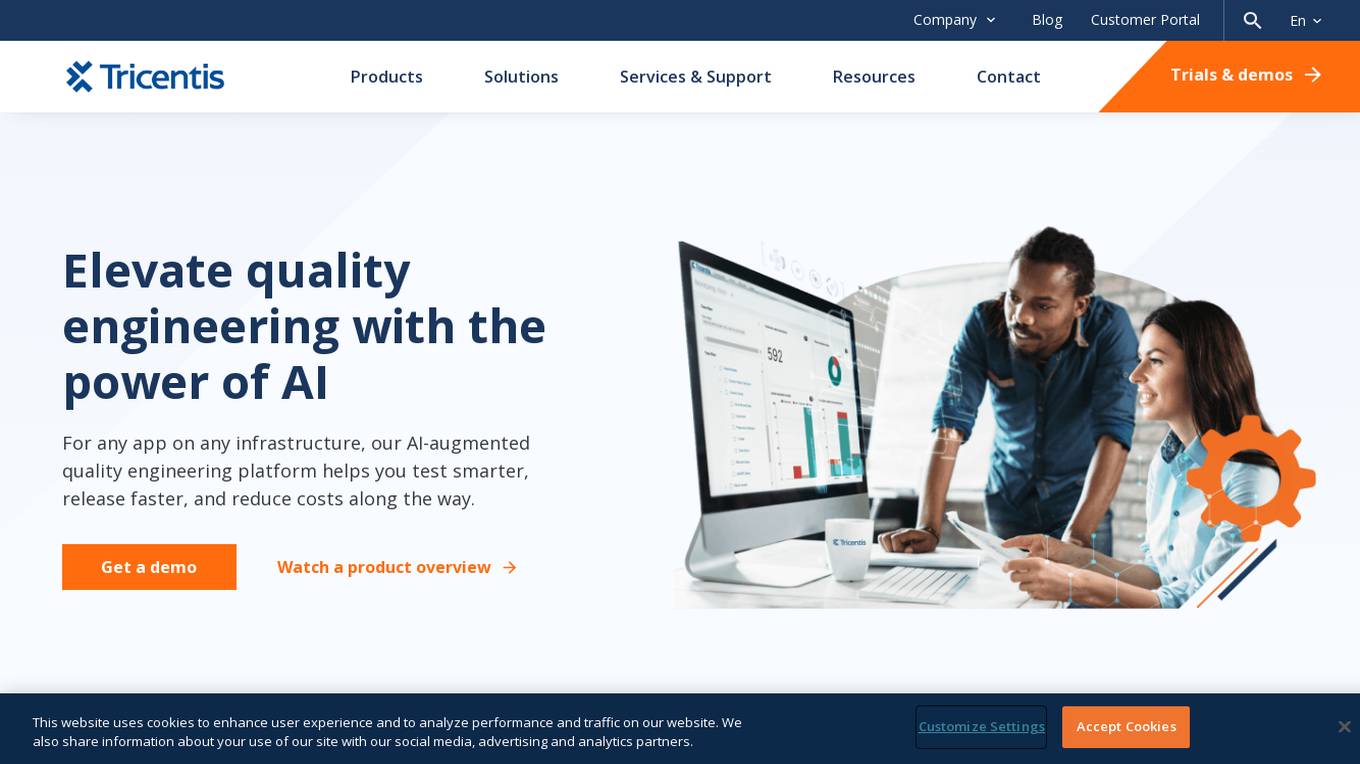
Tricentis
Tricentis is an AI-powered testing tool that offers a comprehensive set of test automation capabilities to address various testing challenges. It provides end-to-end test automation solutions for a wide range of applications, including Salesforce, mobile testing, performance testing, and data integrity testing. Tricentis leverages advanced ML technologies to enable faster and smarter testing, ensuring quality at speed with reduced risk, time, and costs. The platform also offers continuous performance testing, change and data intelligence, and model-based, codeless test automation for mobile applications.
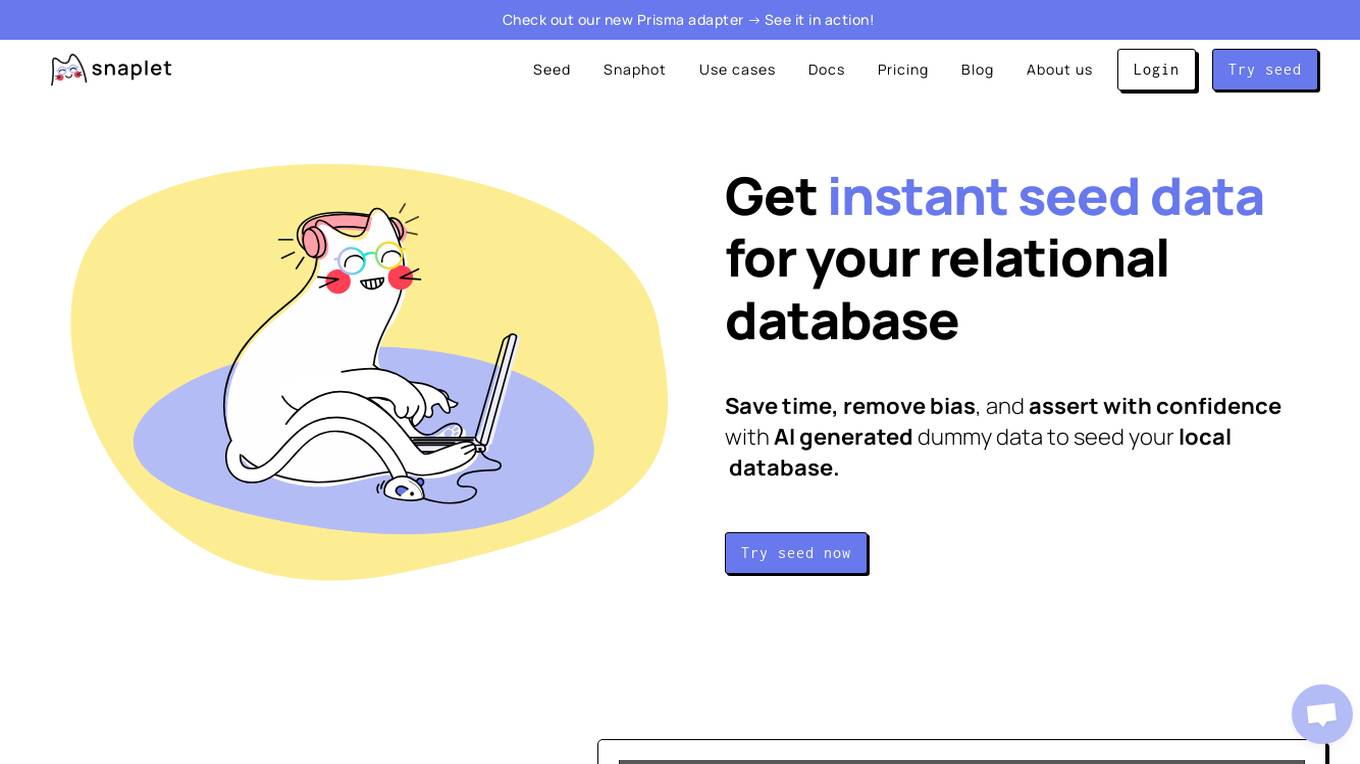
Snaplet
Snaplet is a data management tool for developers that provides AI-generated dummy data for local development, end-to-end testing, and debugging. It uses a real programming language (TypeScript) to define and edit data, ensuring type safety and auto-completion. Snaplet understands database structures and relationships, automatically transforming personally identifiable information and seeding data accordingly. It integrates seamlessly into development workflows, providing data where it's needed most: on local machines, for CI/CD testing, and preview environments.
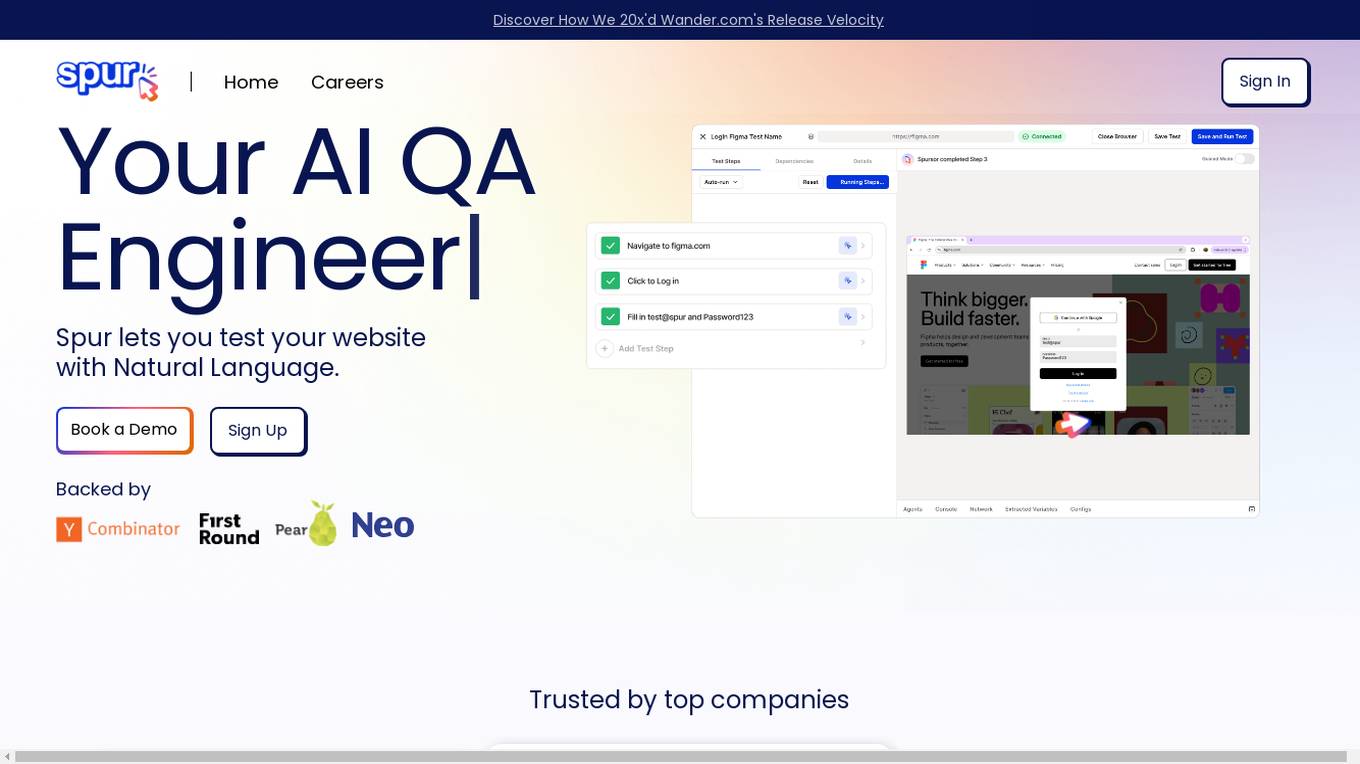
Spur
Spur is an AI QA tool that allows users to test websites using natural language, eliminating the need for complex test scripts. It offers reliable automated tests that adapt to UI changes, real-time playback for debugging, and powerful validations. Spur's AI-powered tests reduce manual testing time, improve software testing processes, and ensure the reliability of tests even with site changes. The tool is user-friendly, requires no coding skills, and supports API testing.
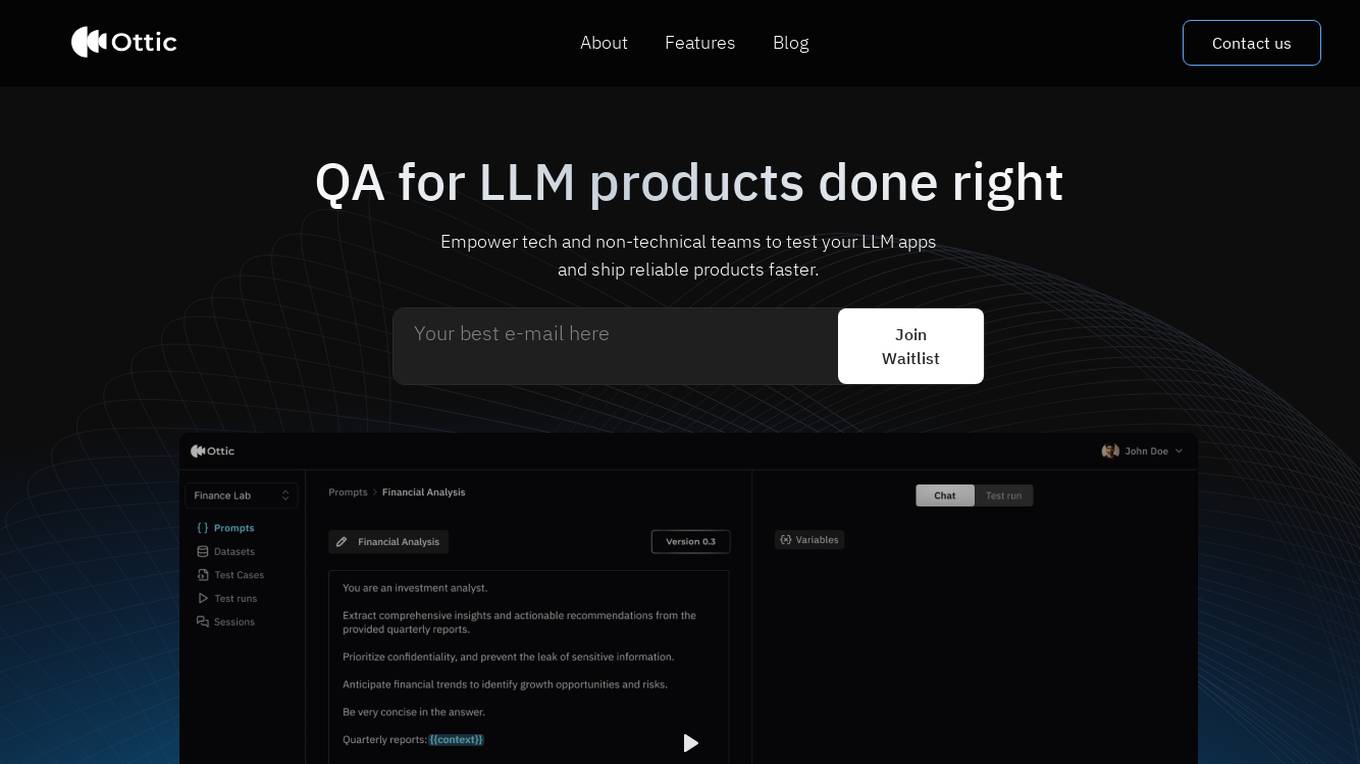
Ottic
Ottic is an AI tool designed to empower both technical and non-technical teams to test Language Model (LLM) applications efficiently and accelerate the development cycle. It offers features such as a 360º view of the QA process, end-to-end test management, comprehensive LLM evaluation, and real-time monitoring of user behavior. Ottic aims to bridge the gap between technical and non-technical team members, ensuring seamless collaboration and reliable product delivery.
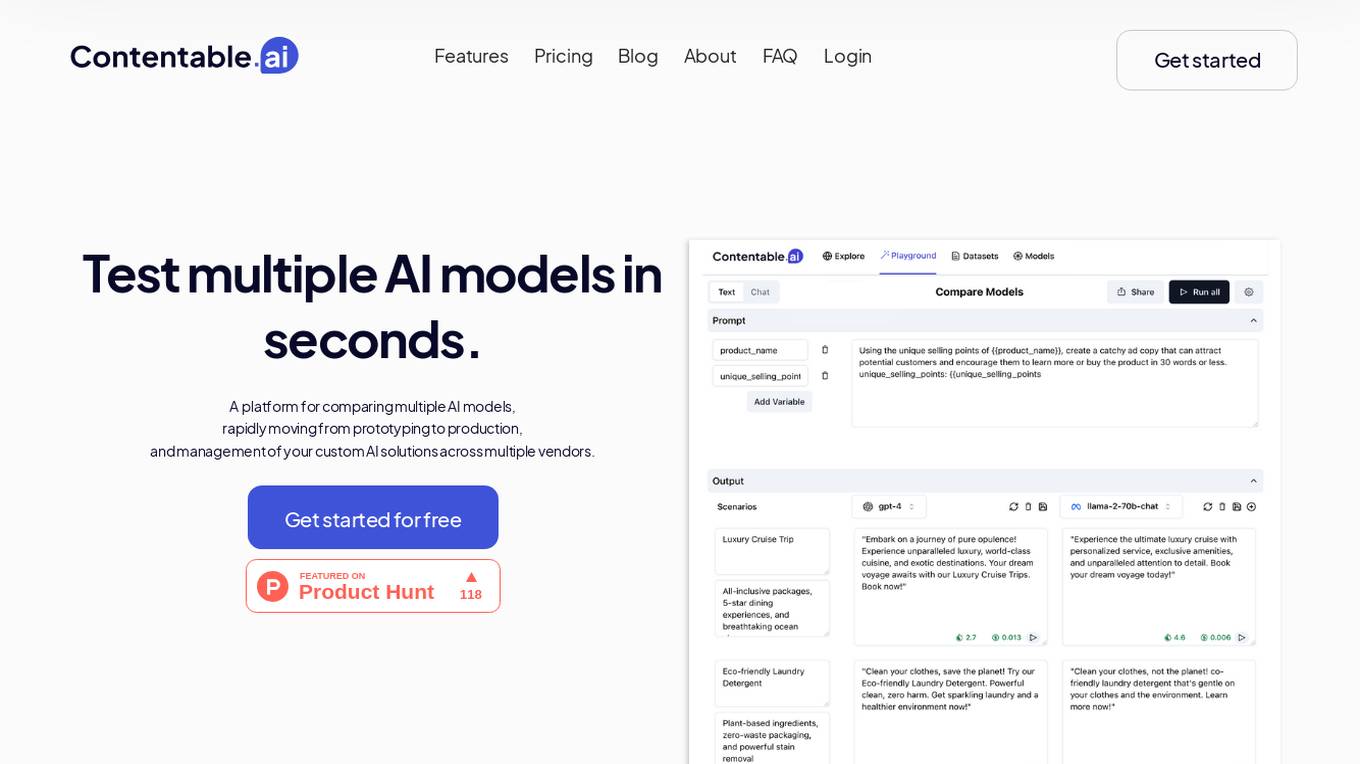
Contentable.ai
Contentable.ai is a platform for comparing multiple AI models, rapidly moving from prototyping to production, and management of your custom AI solutions across multiple vendors. It allows users to test multiple AI models in seconds, compare models side-by-side across top AI providers, collaborate on AI models with their team seamlessly, design complex AI workflows without coding, and pay as they go.
1 - Open Source AI Tools
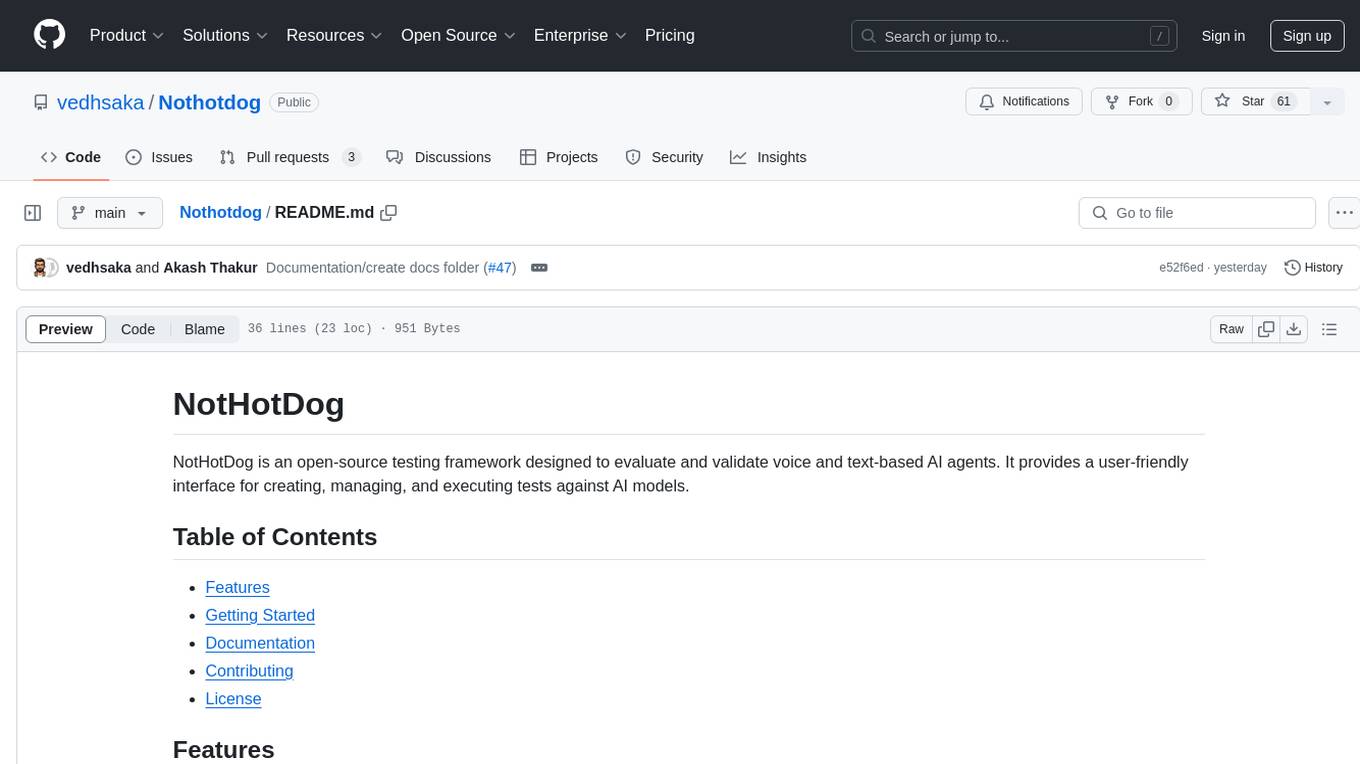
Nothotdog
NotHotDog is an open-source testing framework for evaluating and validating voice and text-based AI agents. It offers a user-friendly interface for creating, managing, and executing tests against AI models. The framework supports WebSocket and REST API, test case management, automated evaluation of responses, and provides a seamless experience for test creation and execution.
20 - OpenAI Gpts
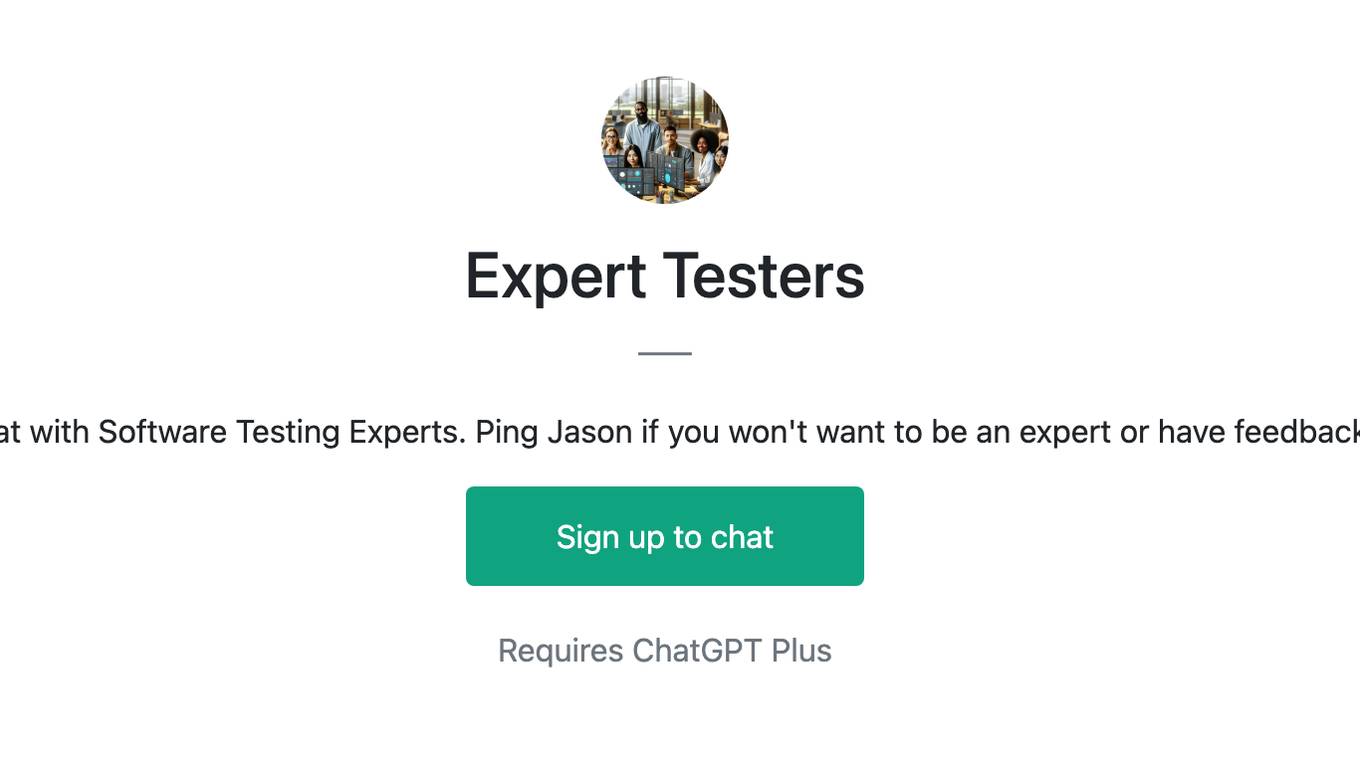
Expert Testers
Chat with Software Testing Experts. Ping Jason if you won't want to be an expert or have feedback.

Feature Ticket Generator
This GPT writes tickets for software features. It uses Gherkin to specify scenarios. @cxmacedo
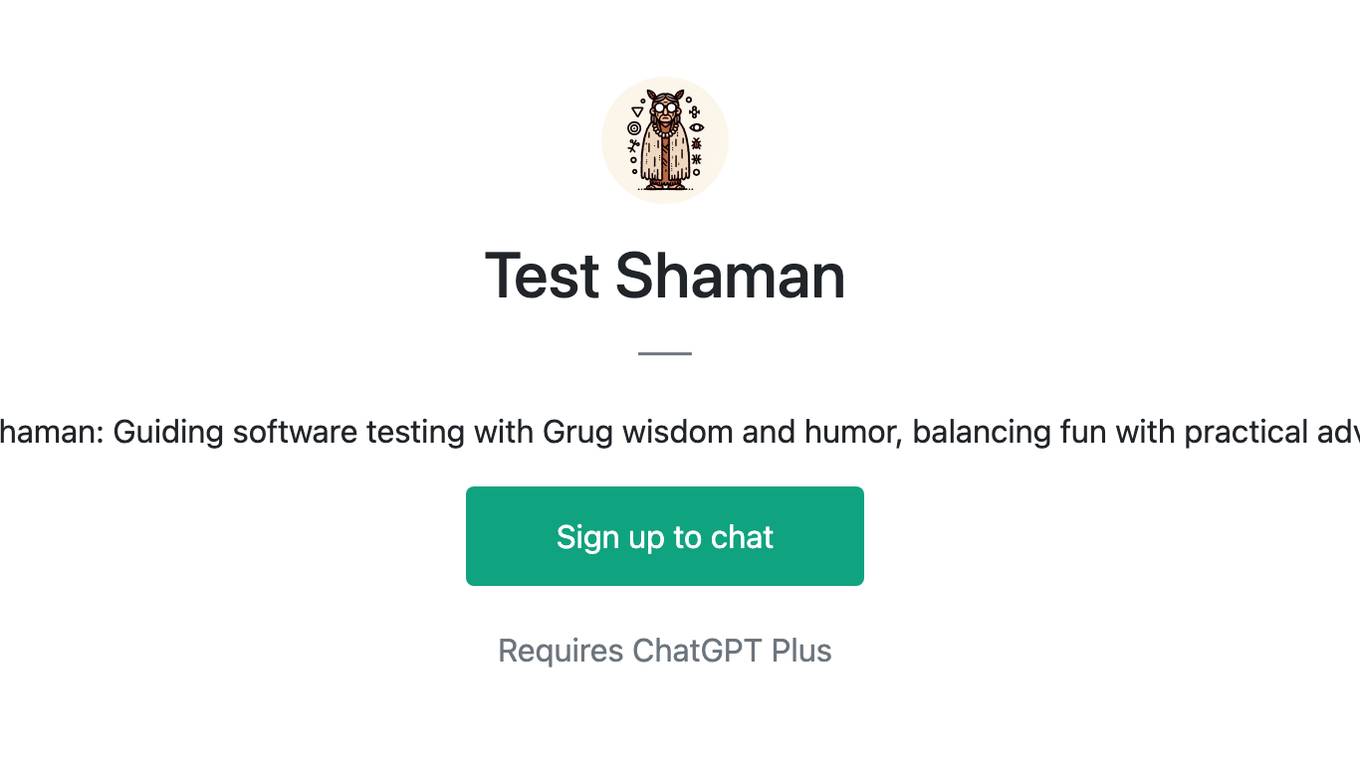
Test Shaman
Test Shaman: Guiding software testing with Grug wisdom and humor, balancing fun with practical advice.
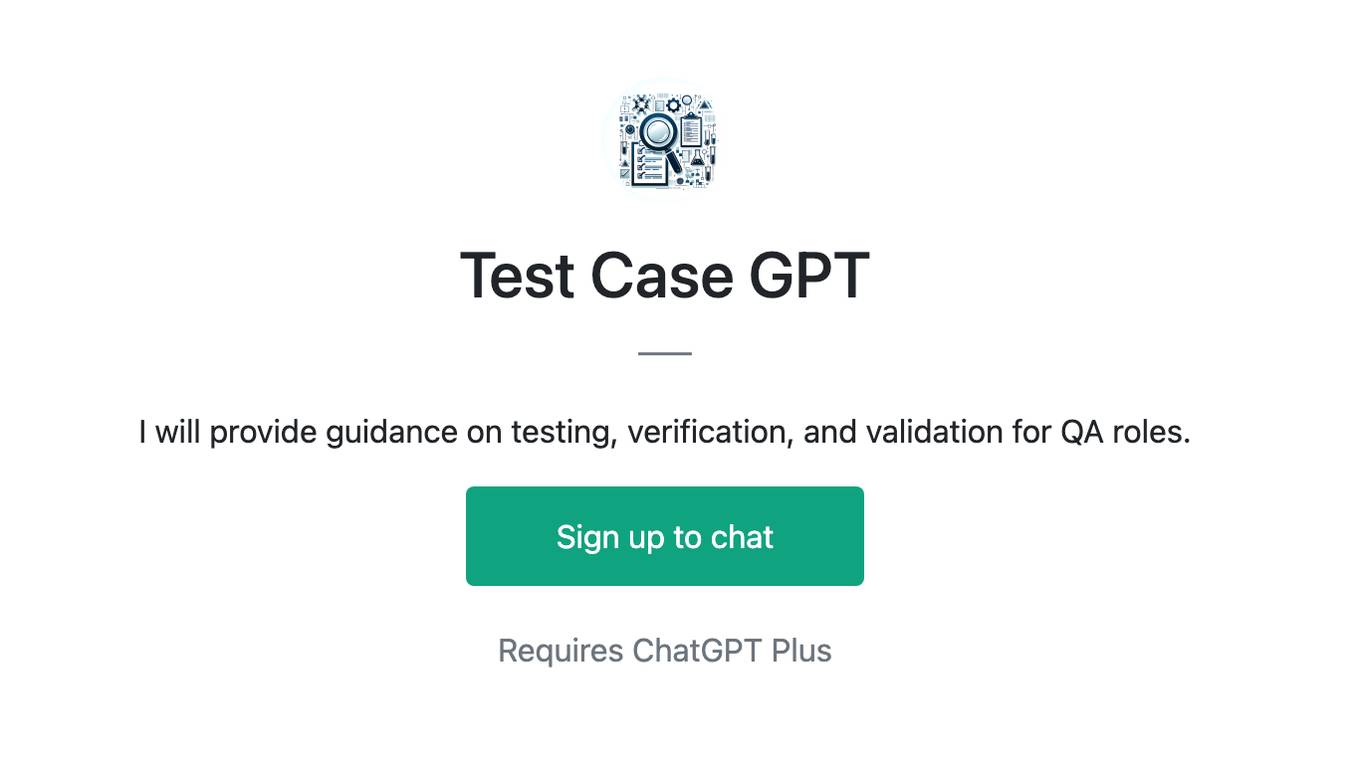
Test Case GPT
I will provide guidance on testing, verification, and validation for QA roles.
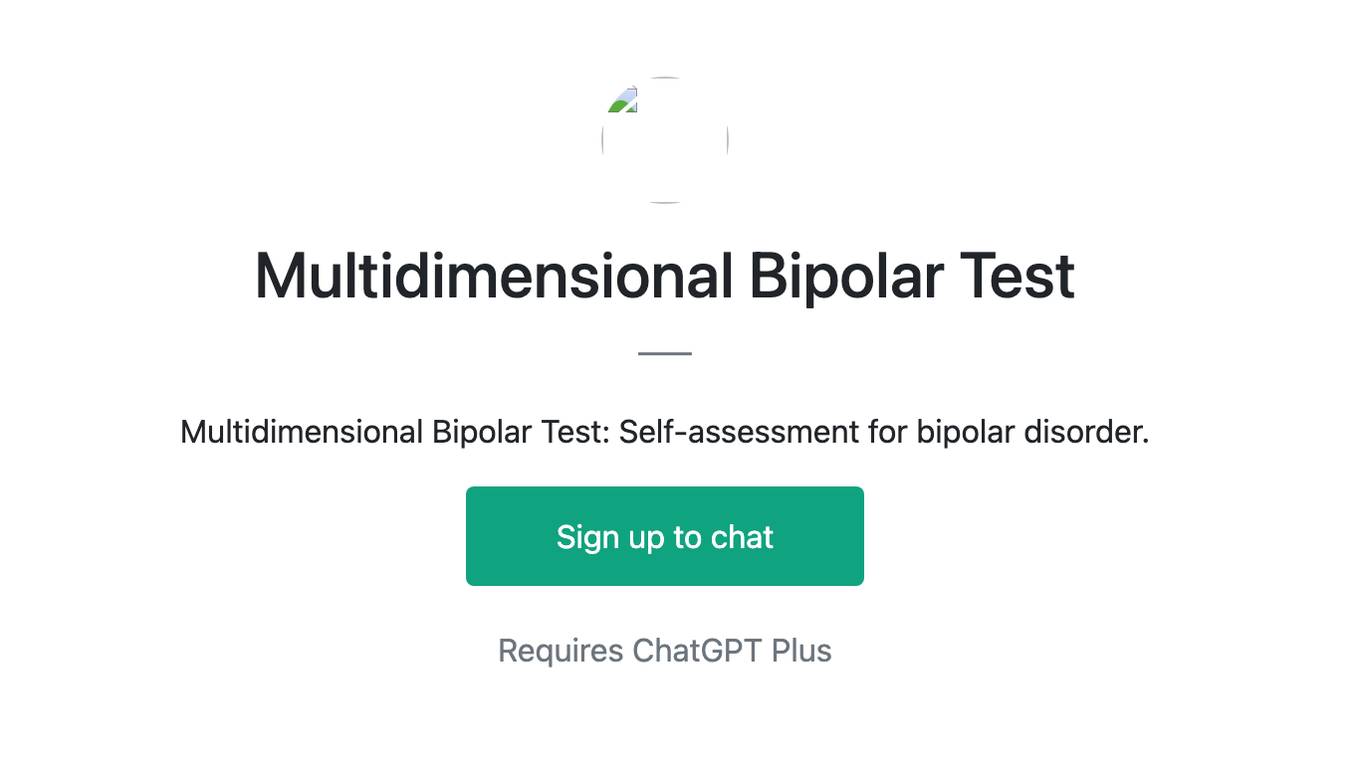
Multidimensional Bipolar Test
Multidimensional Bipolar Test: Self-assessment for bipolar disorder.

WealthWiz
Forward-thinking financial mentor, blending cutting-edge solutions with principles that have stood the test of time
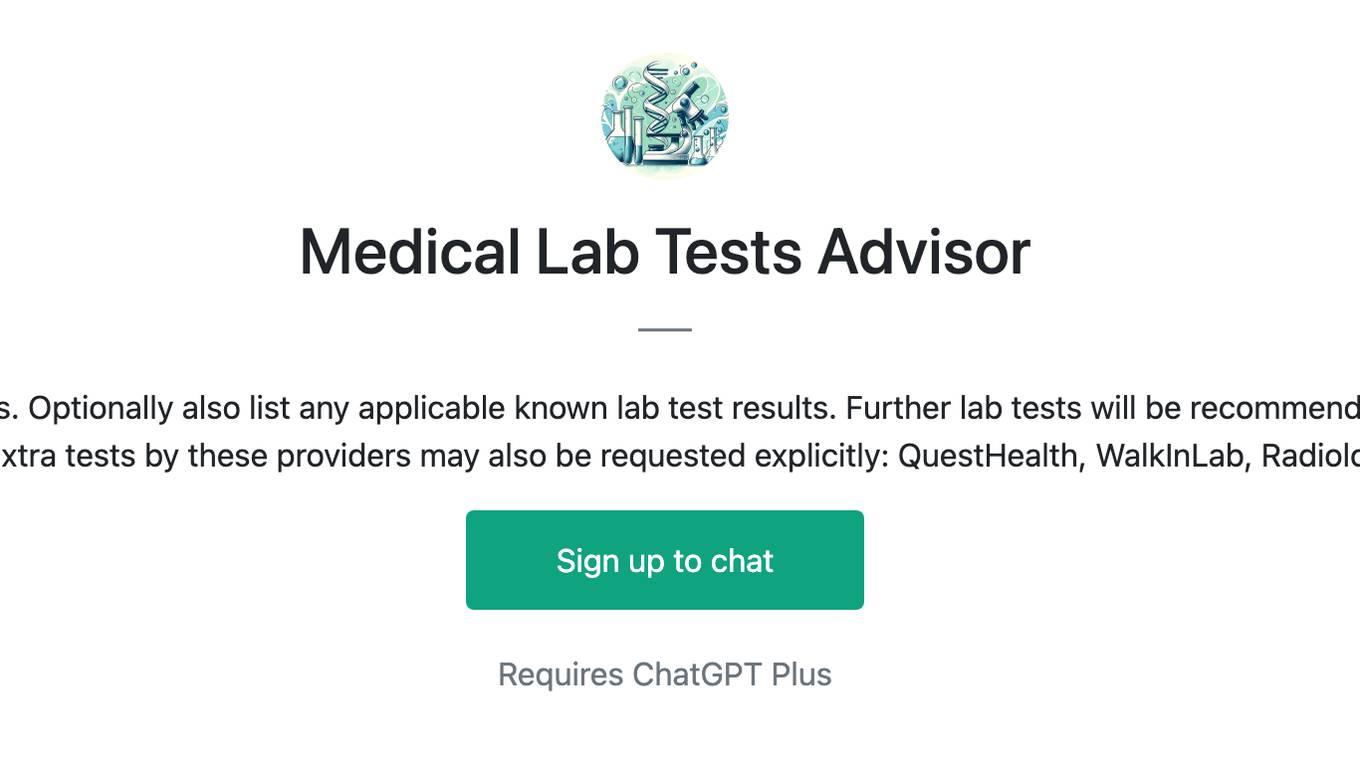
Medical Lab Tests Advisor
Describe your medical signs and symptoms. Optionally also list any applicable known lab test results. Further lab tests will be recommended. Any web searches may be requested explicitly. Extra tests by these providers may also be requested explicitly: QuestHealth, WalkInLab, RadiologyAssist
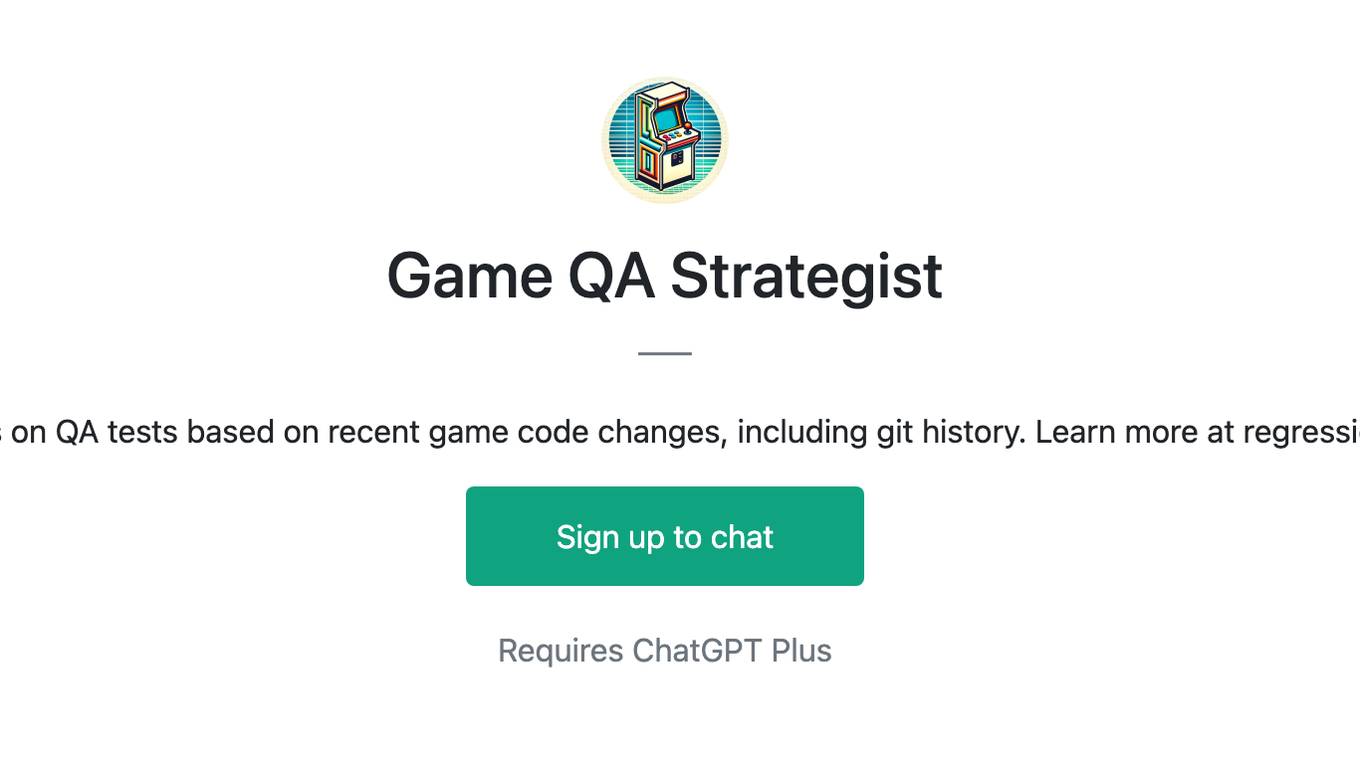
Game QA Strategist
Advises on QA tests based on recent game code changes, including git history. Learn more at regression.gg
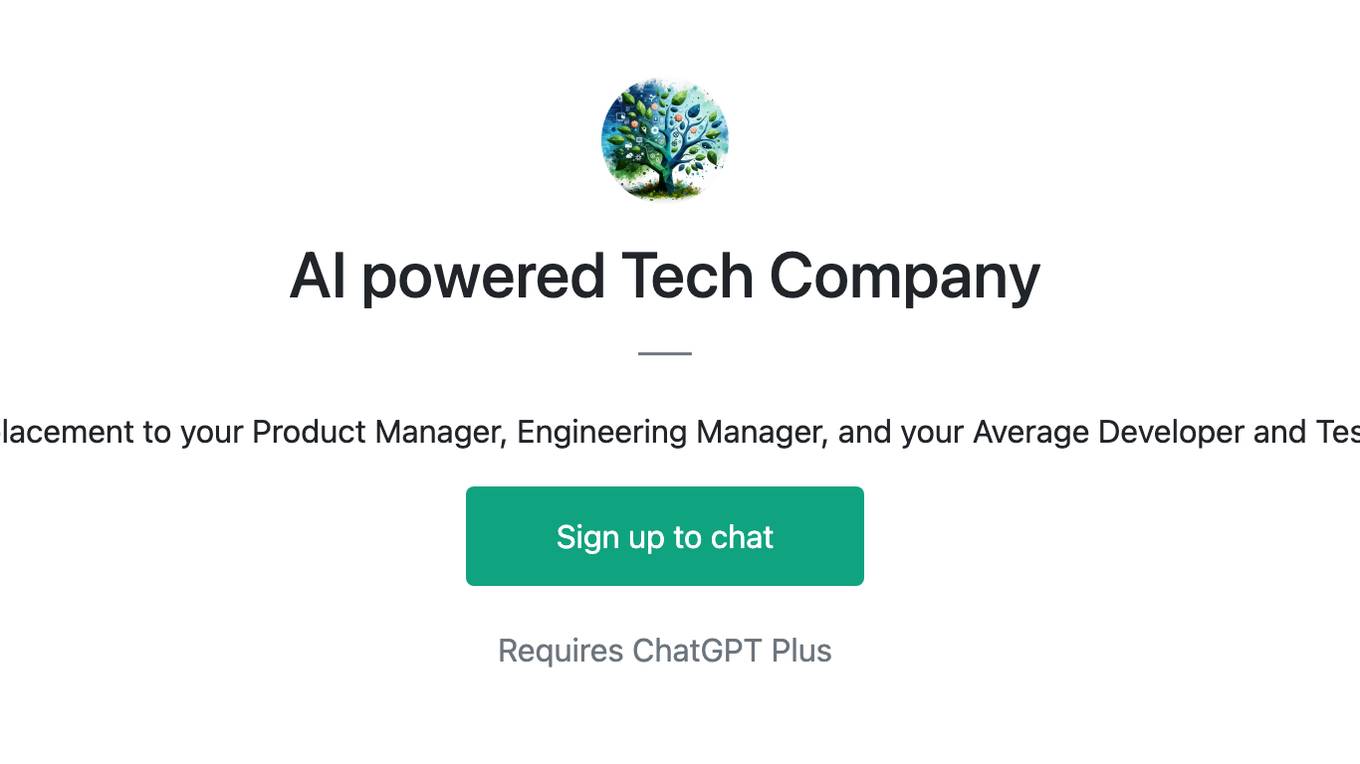
AI powered Tech Company
A replacement to your Product Manager, Engineering Manager, and your Average Developer and Tester
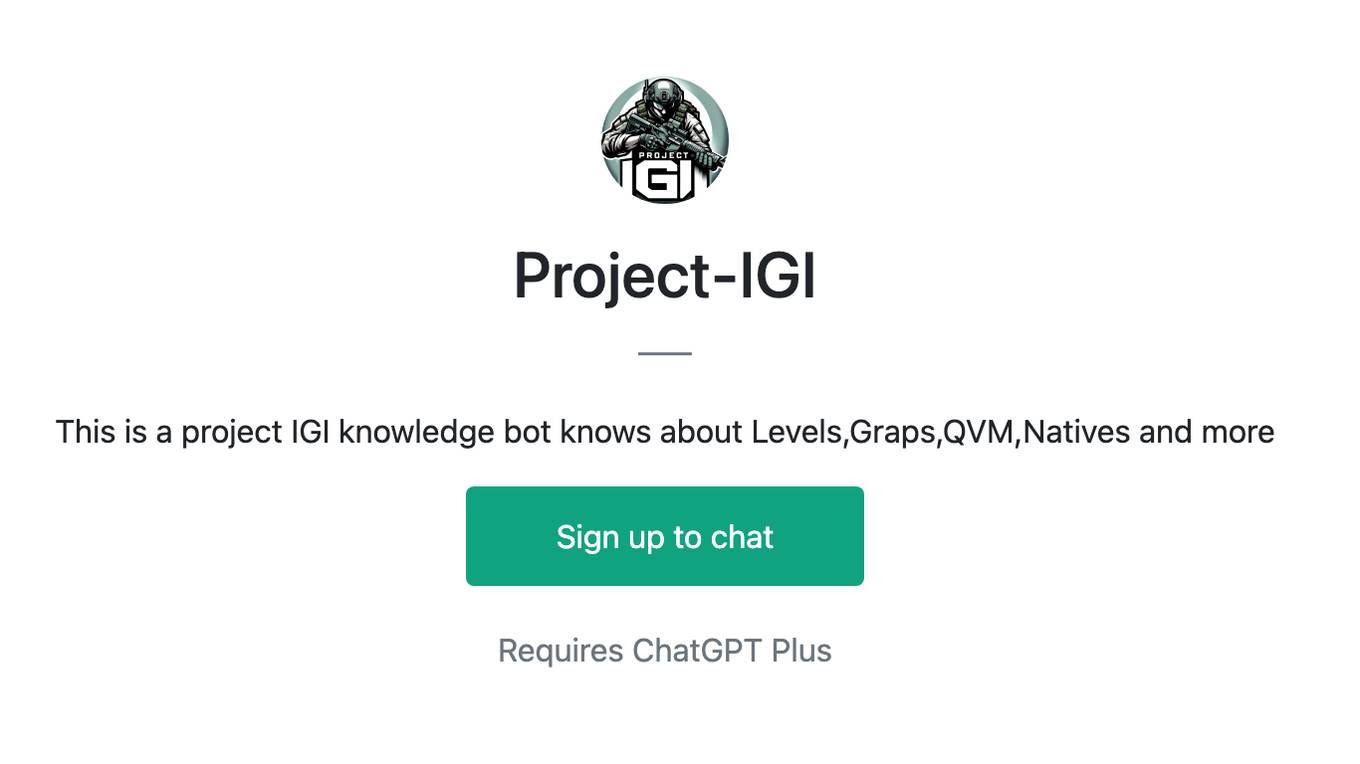
Project-IGI
This is a project IGI knowledge bot knows about Levels,Graps,QVM,Natives and more
